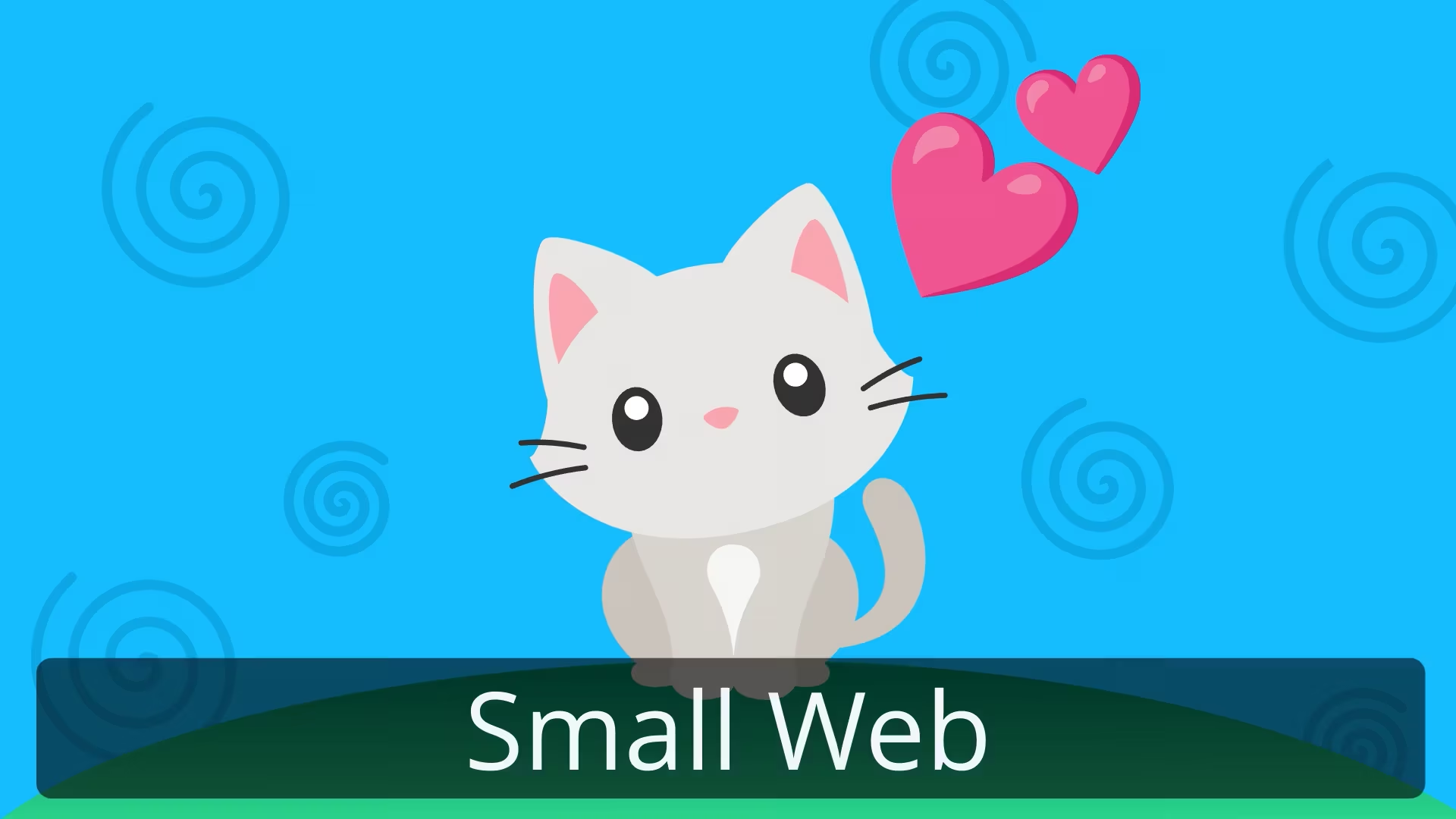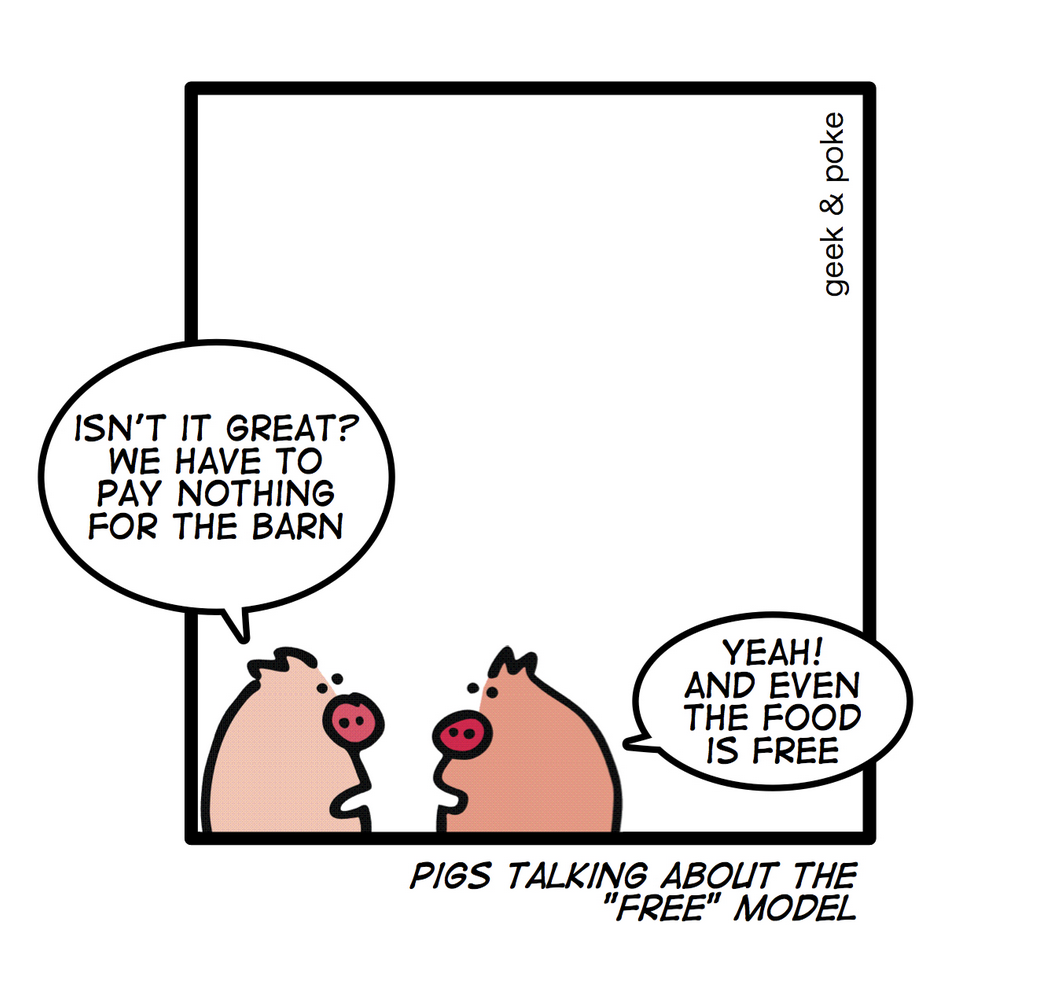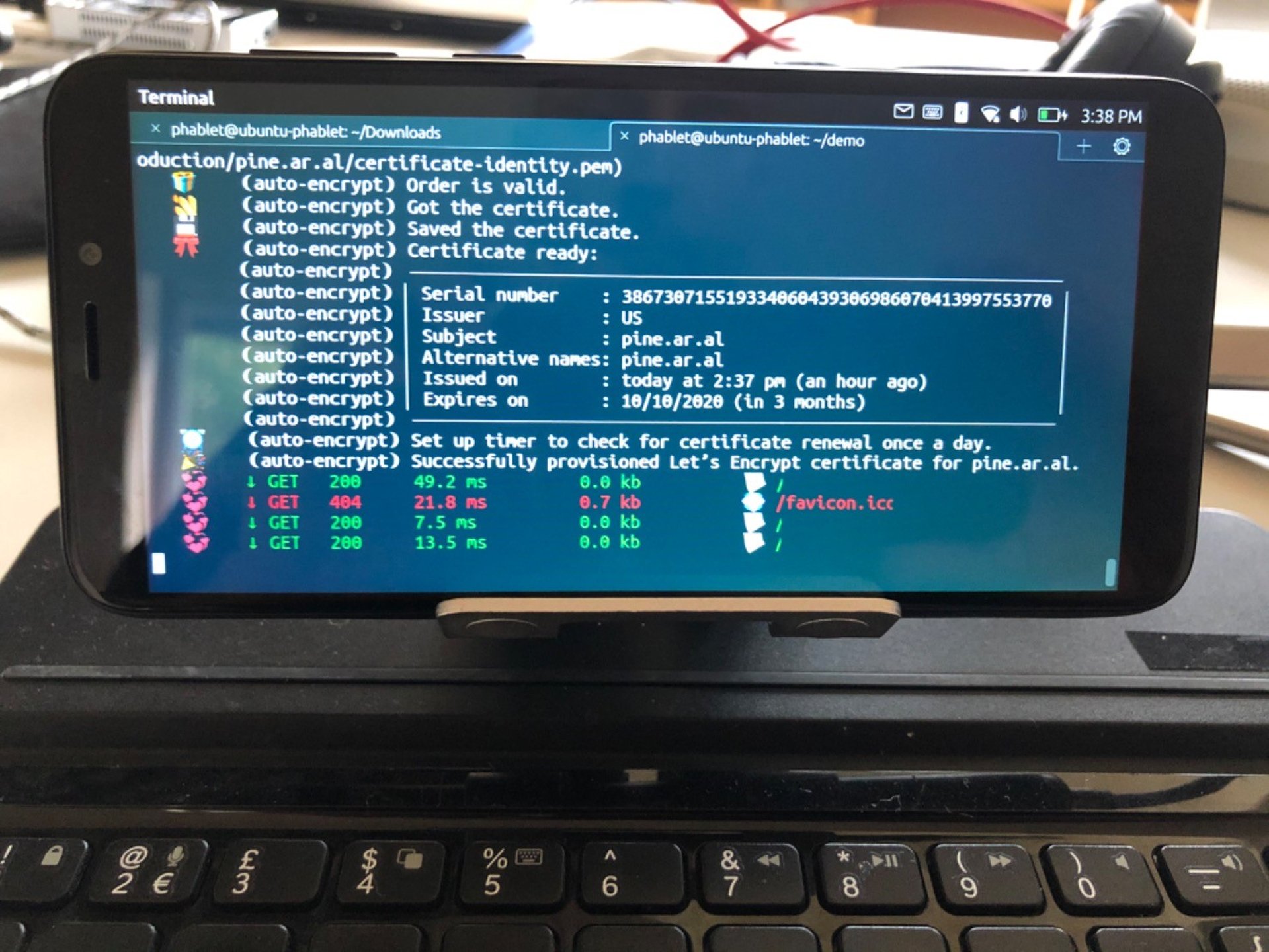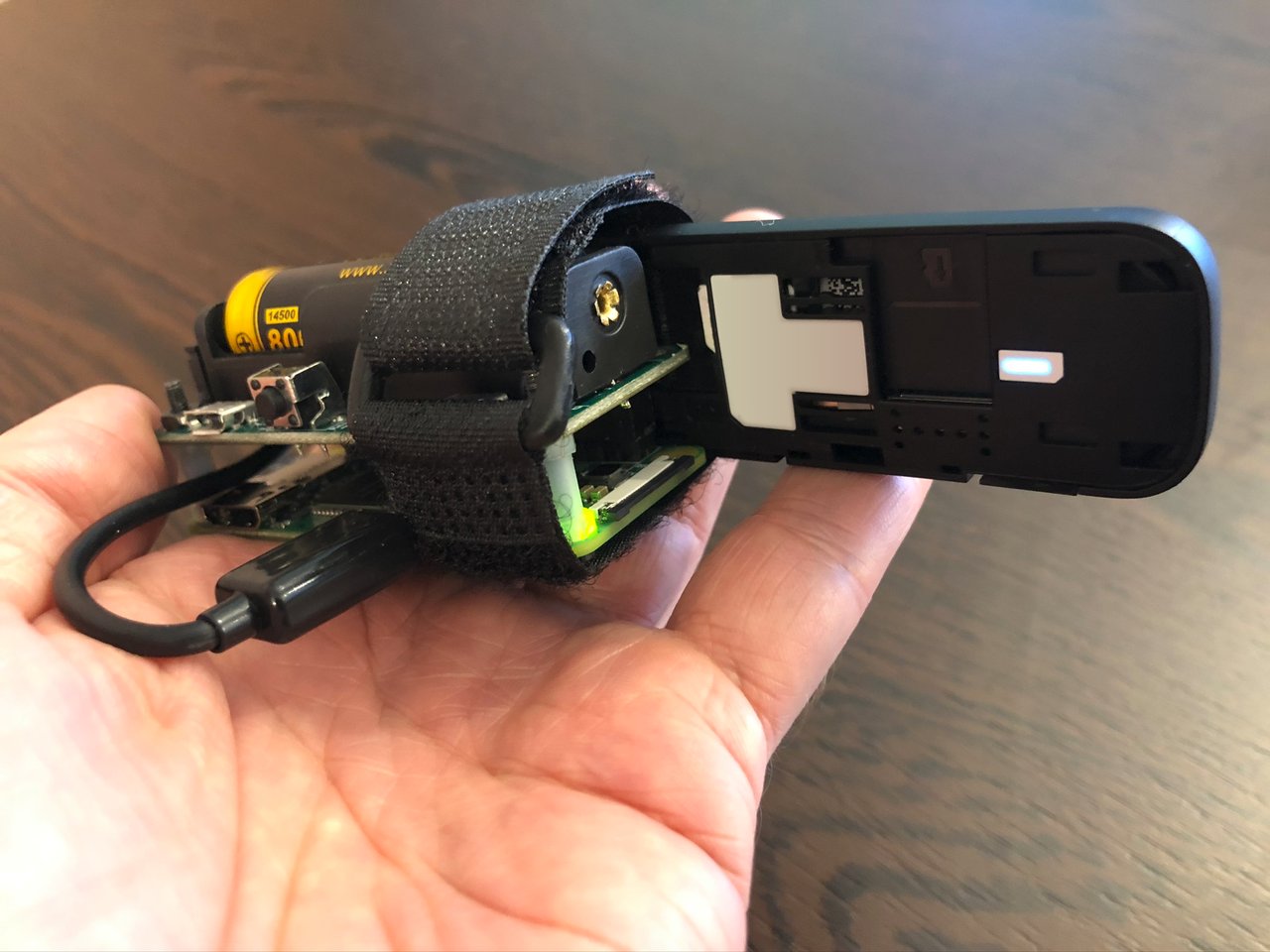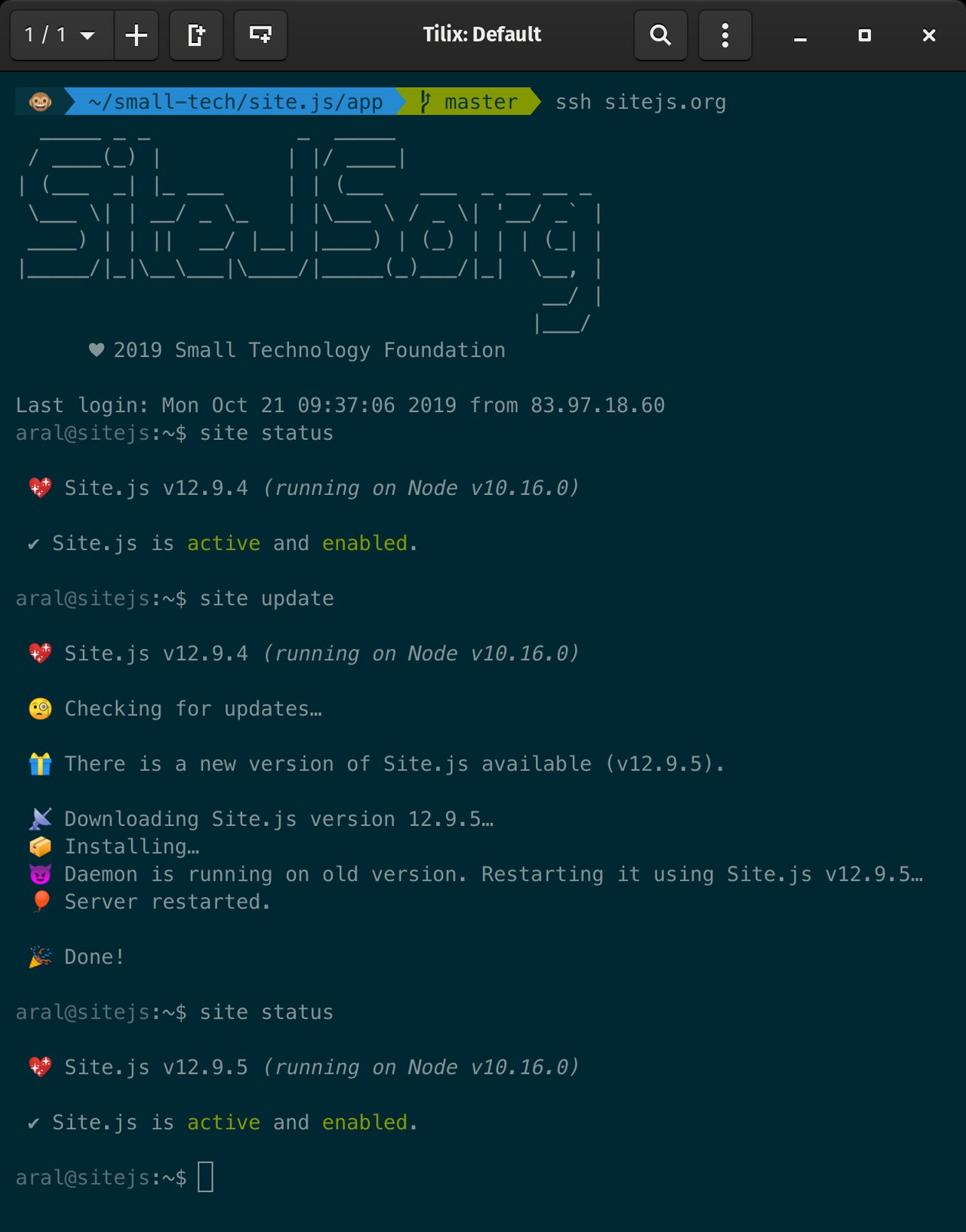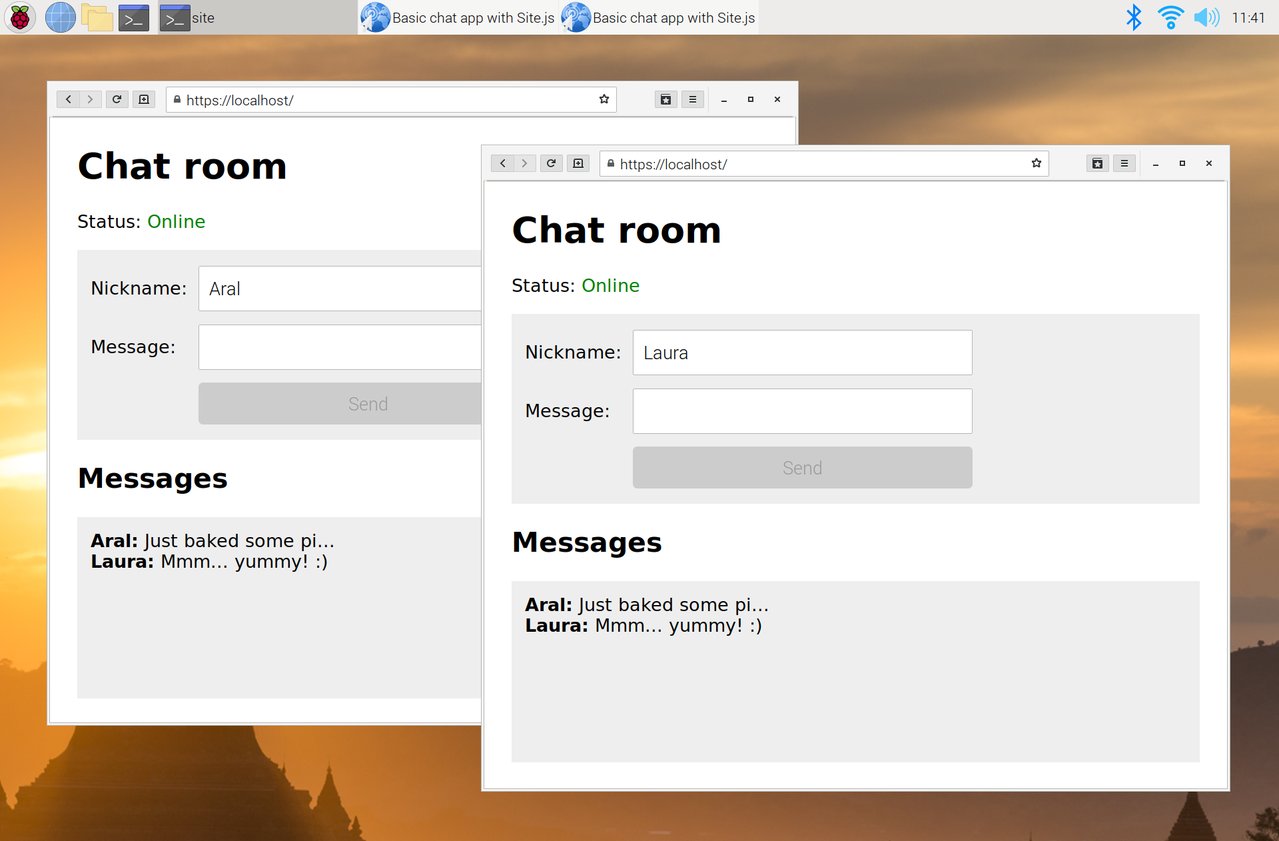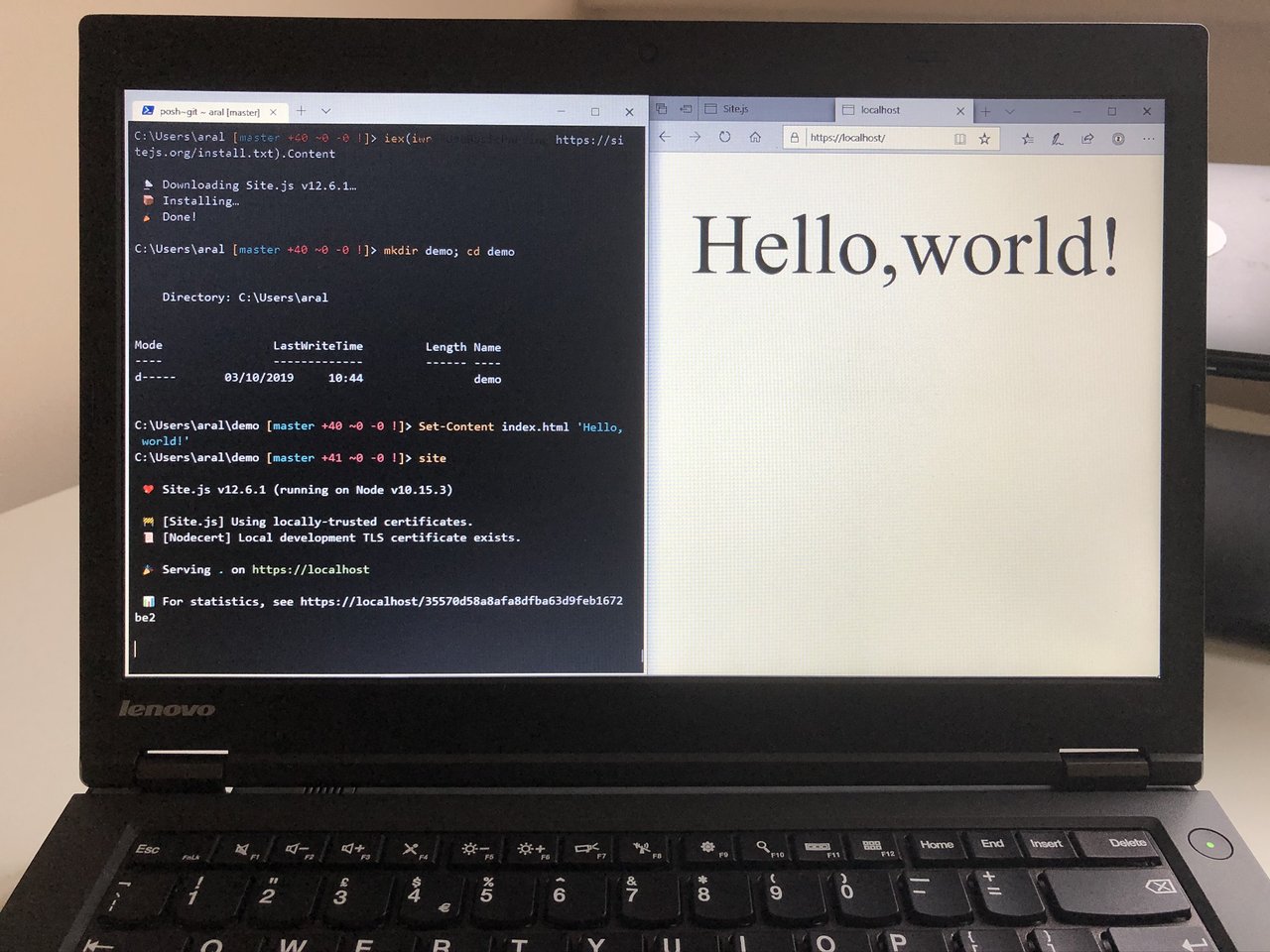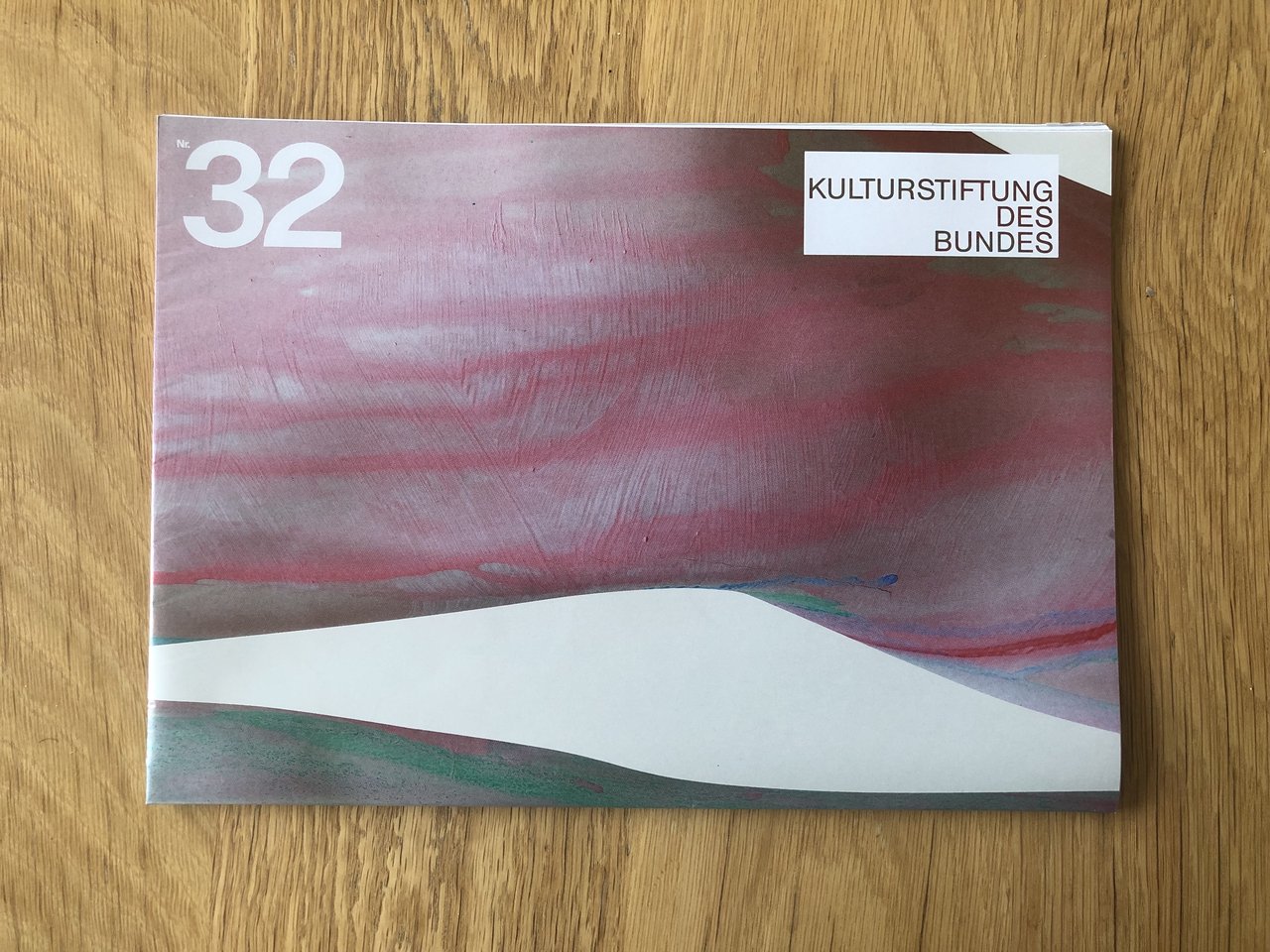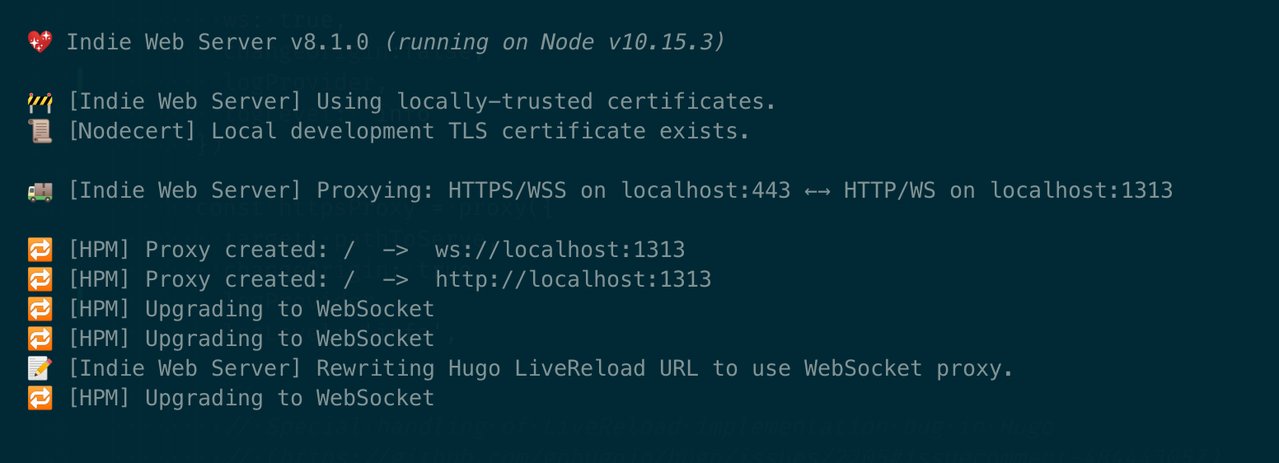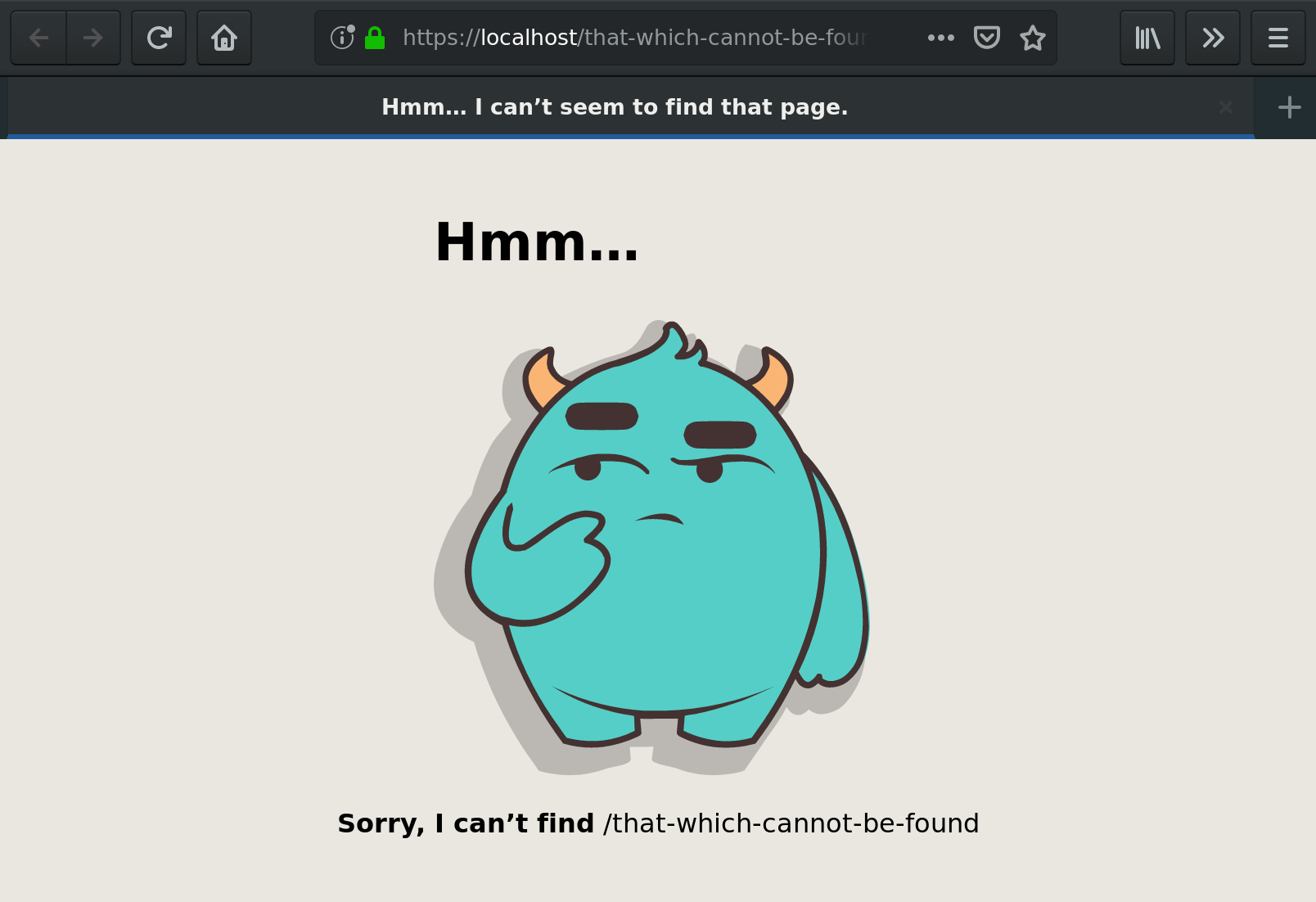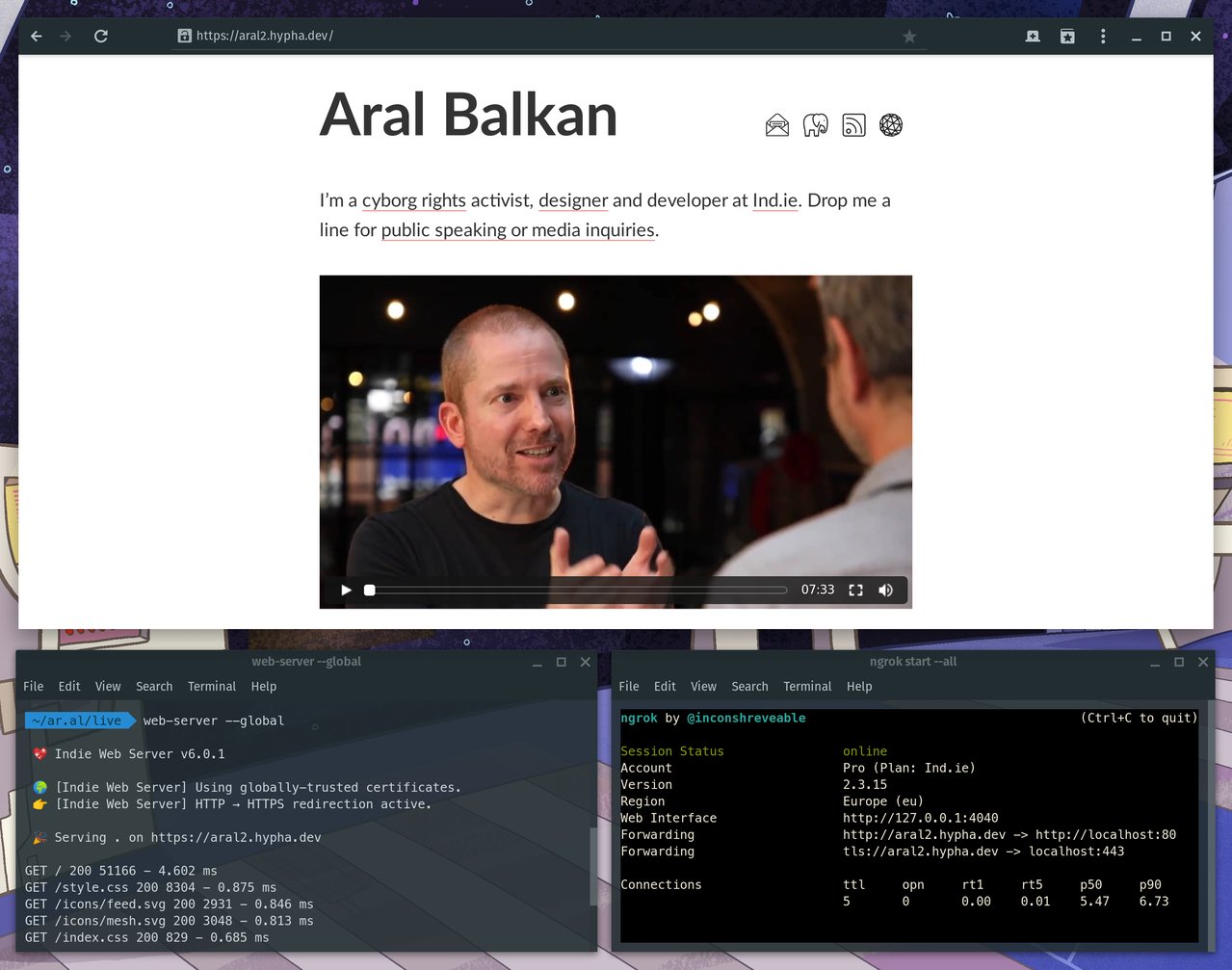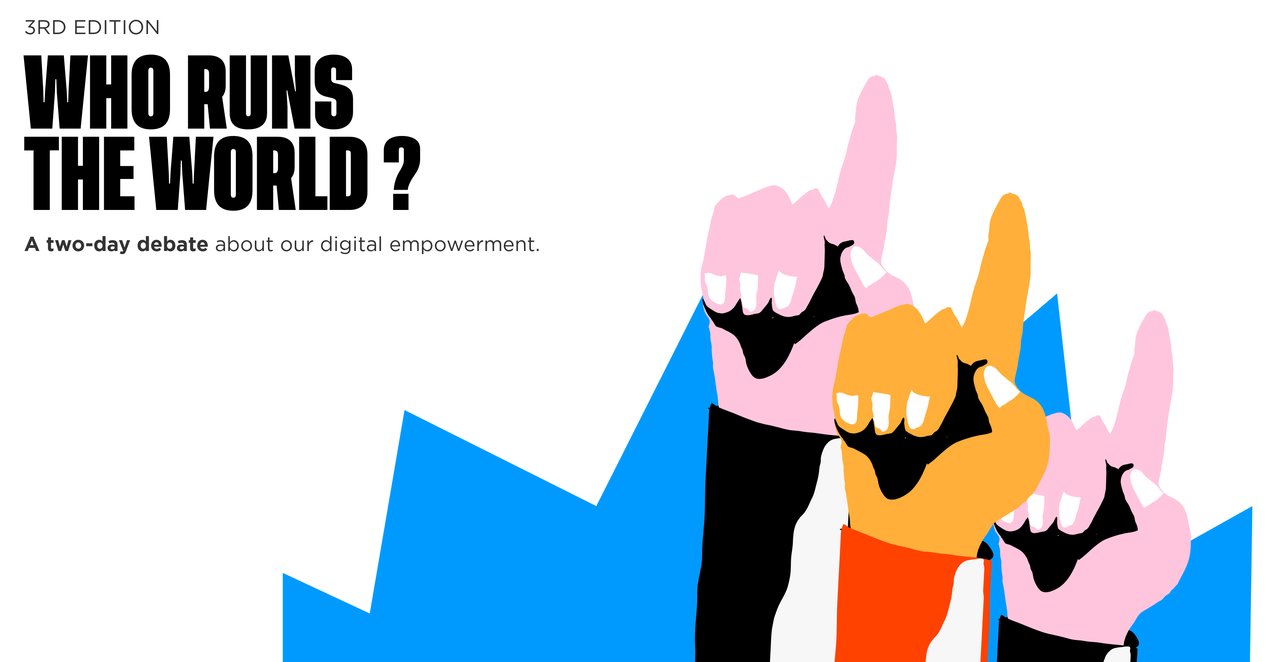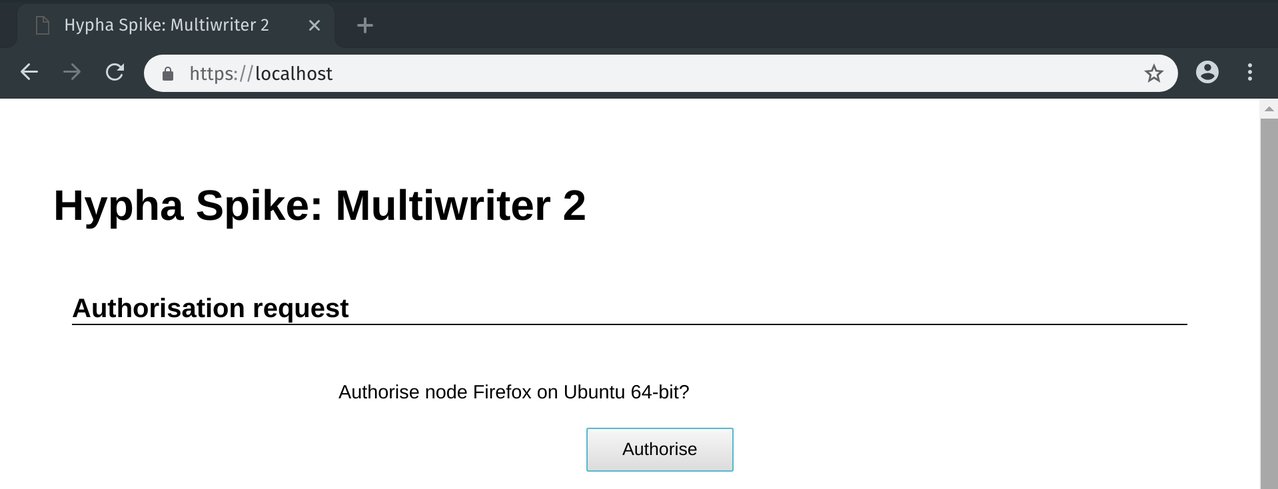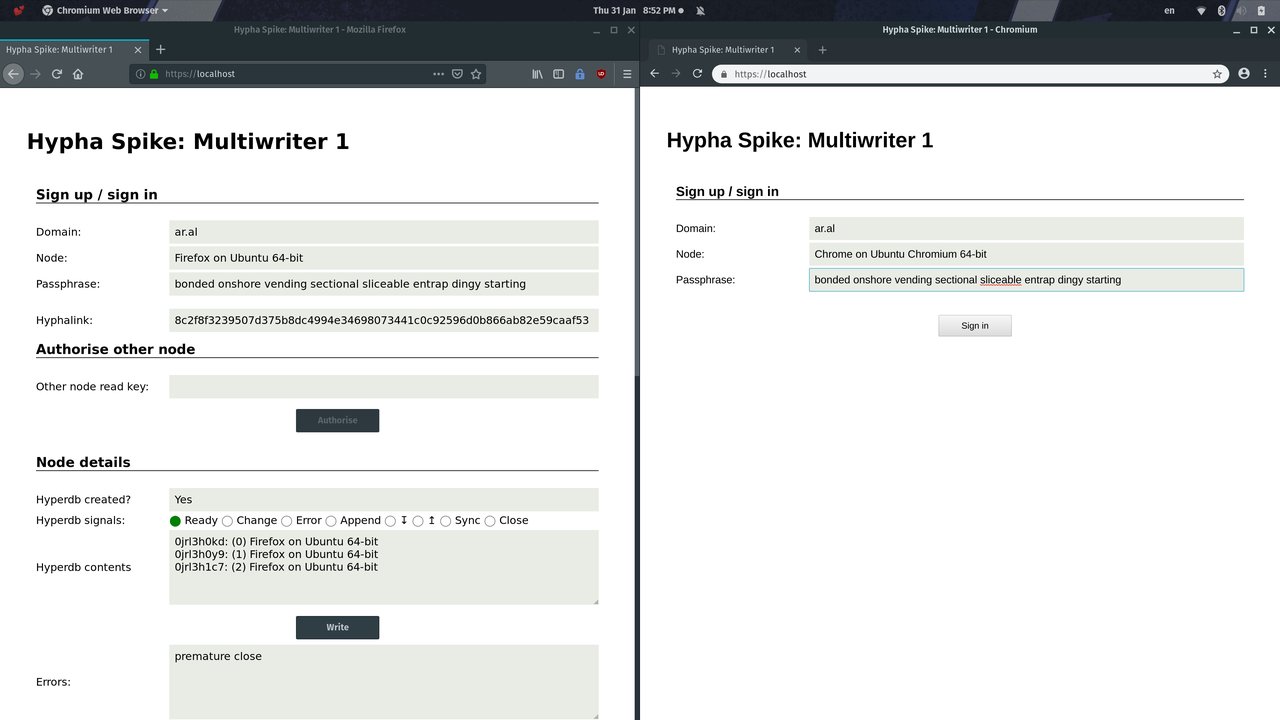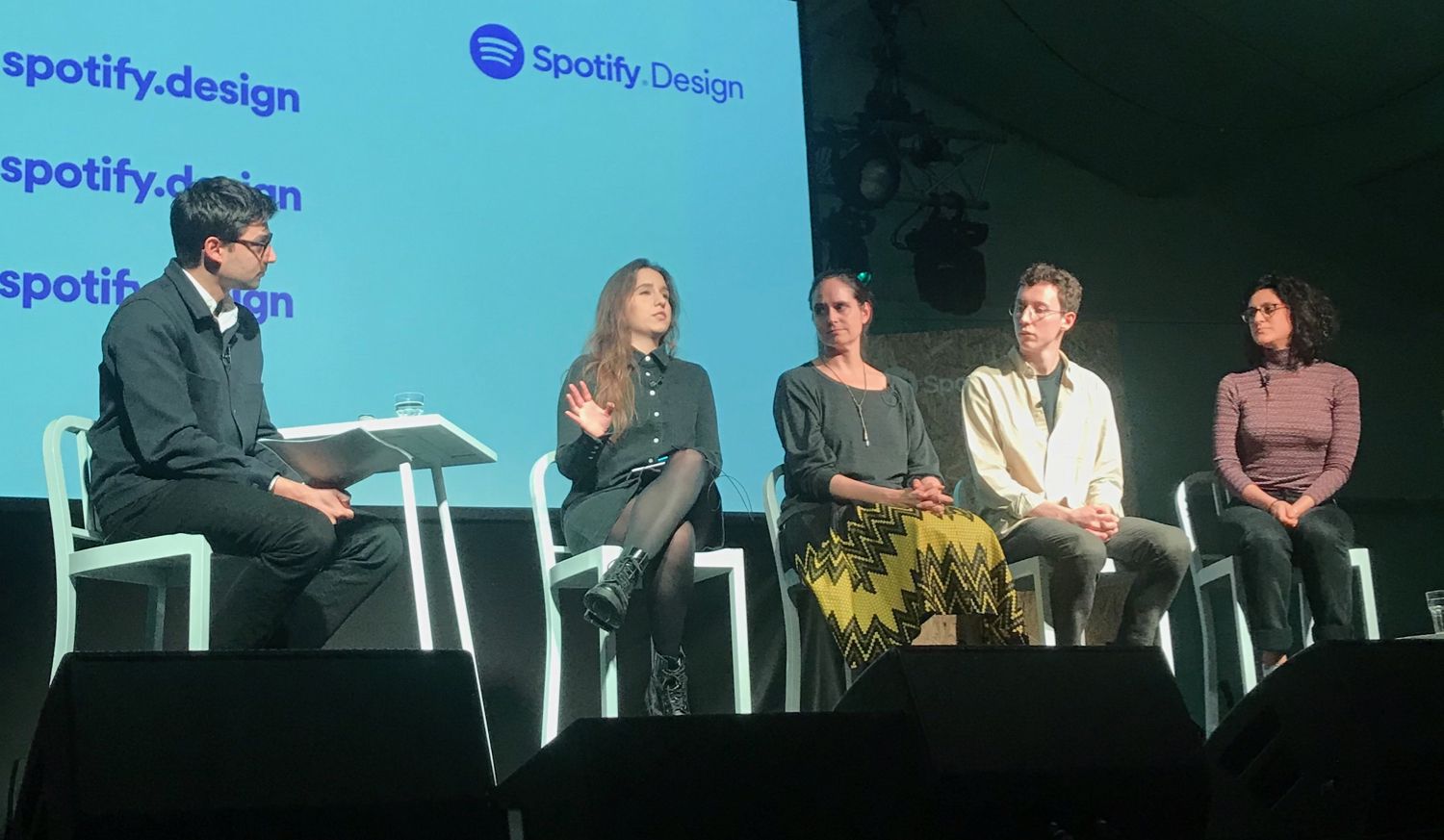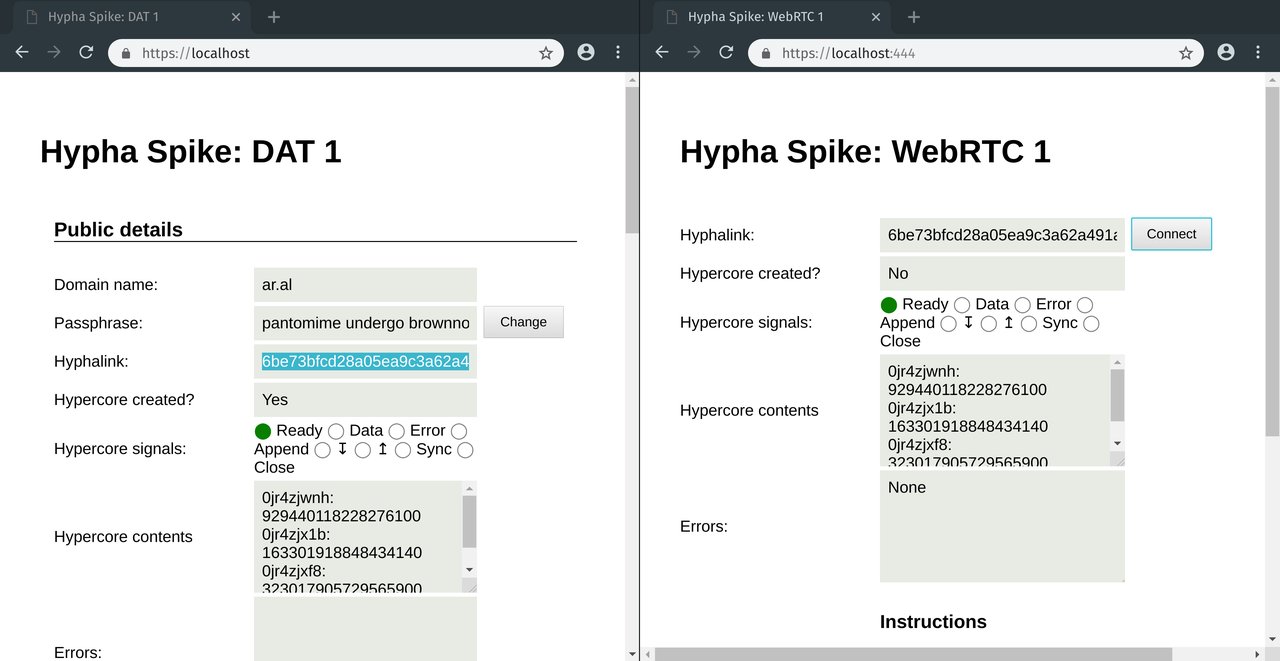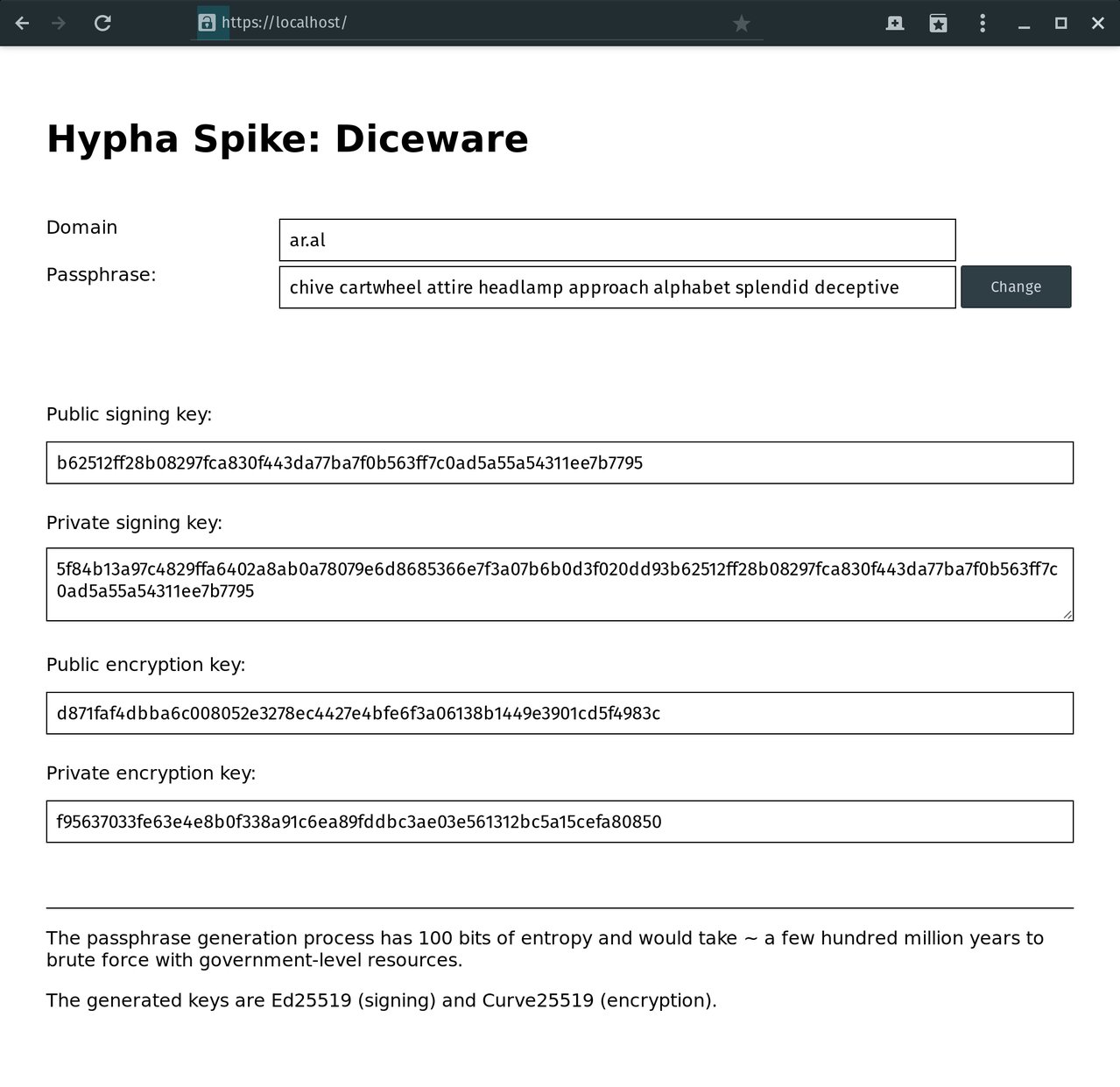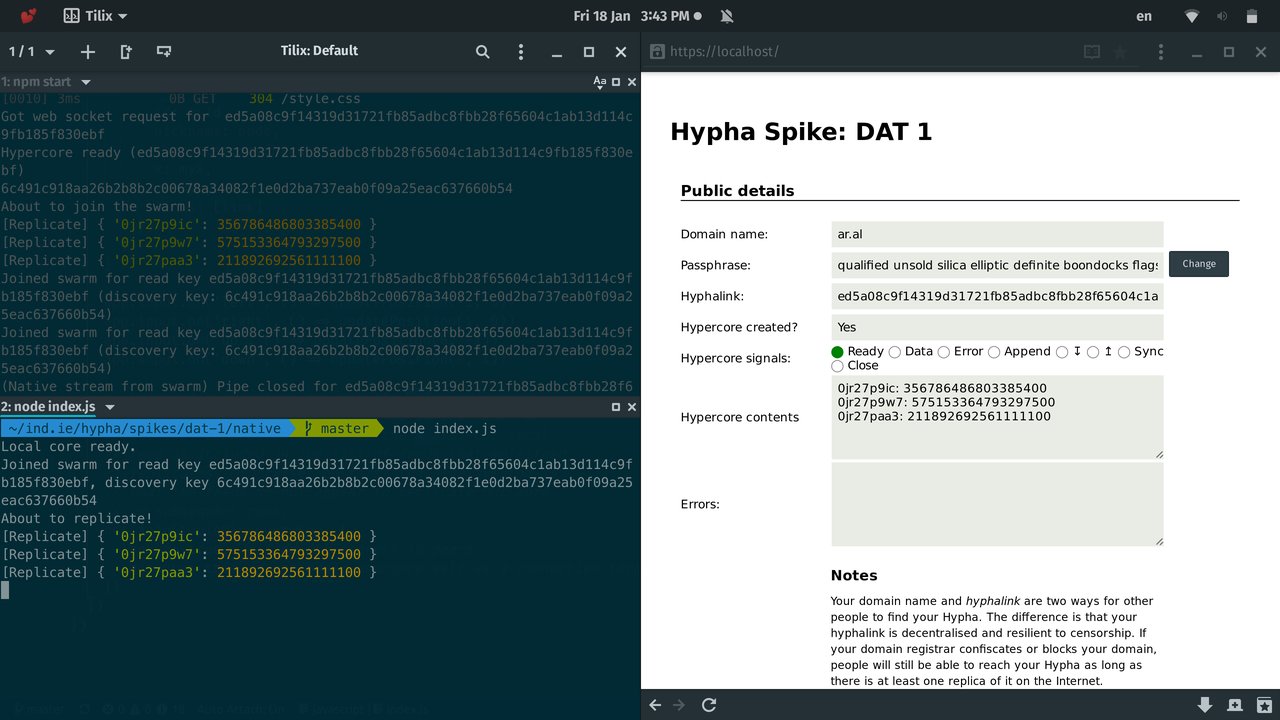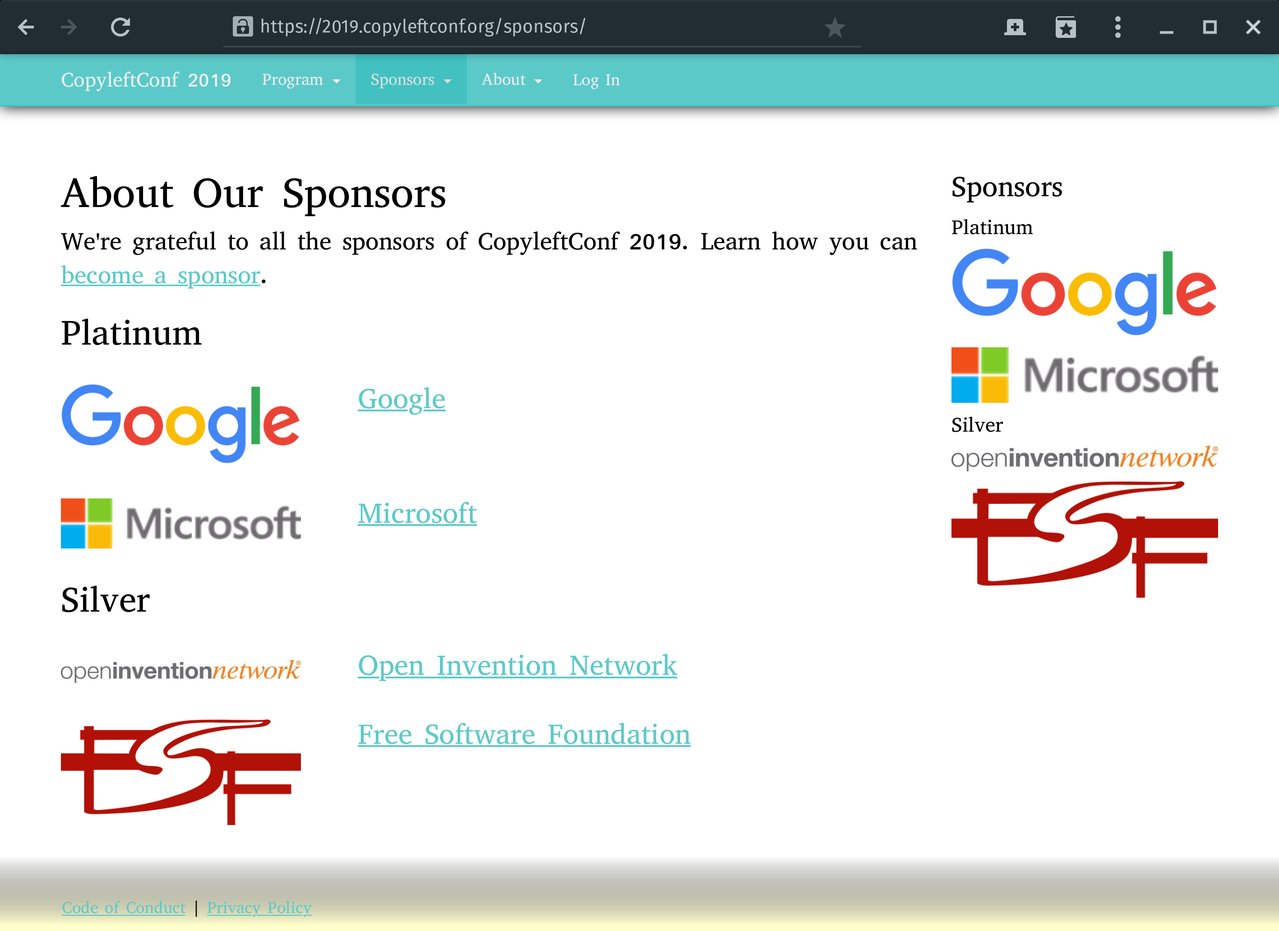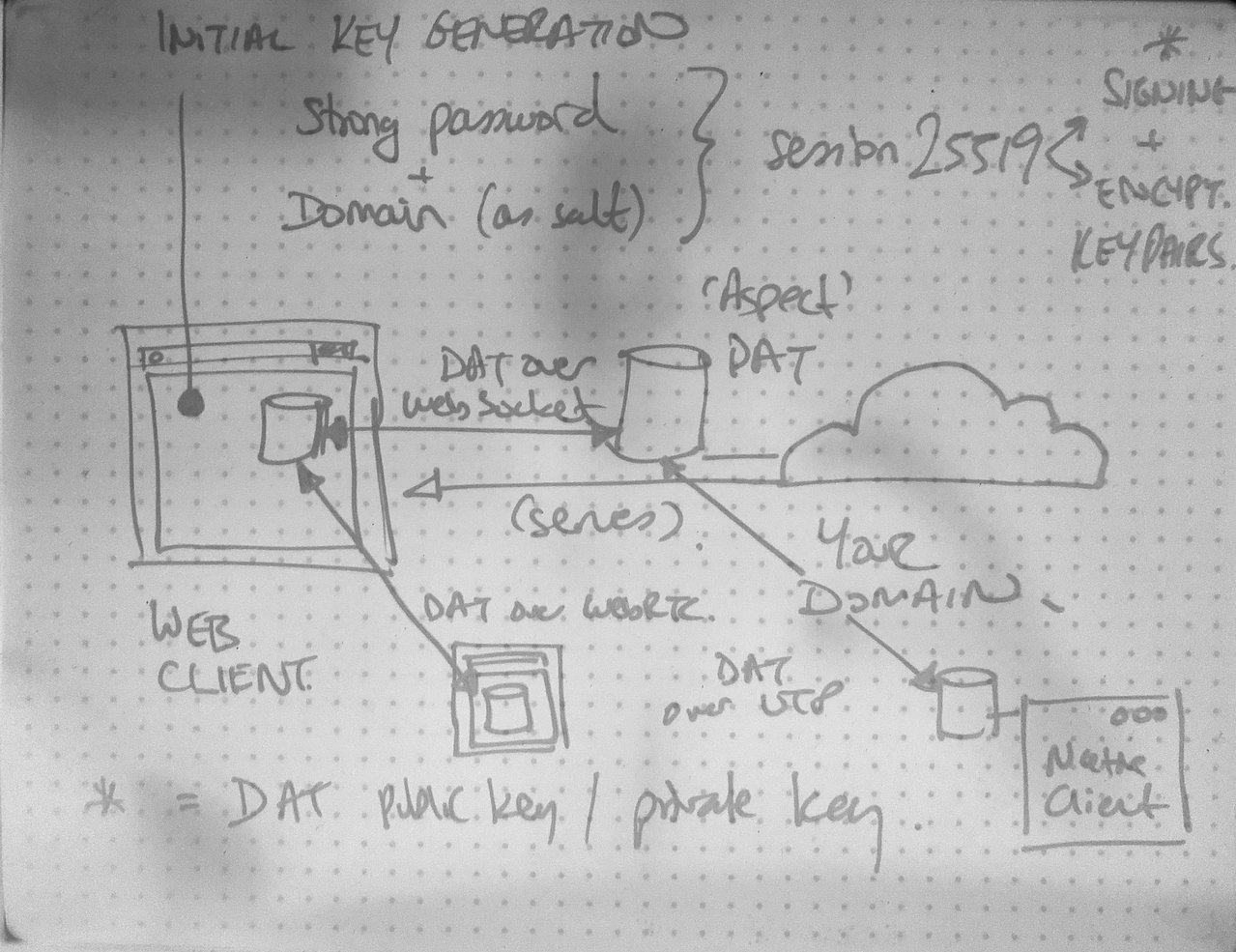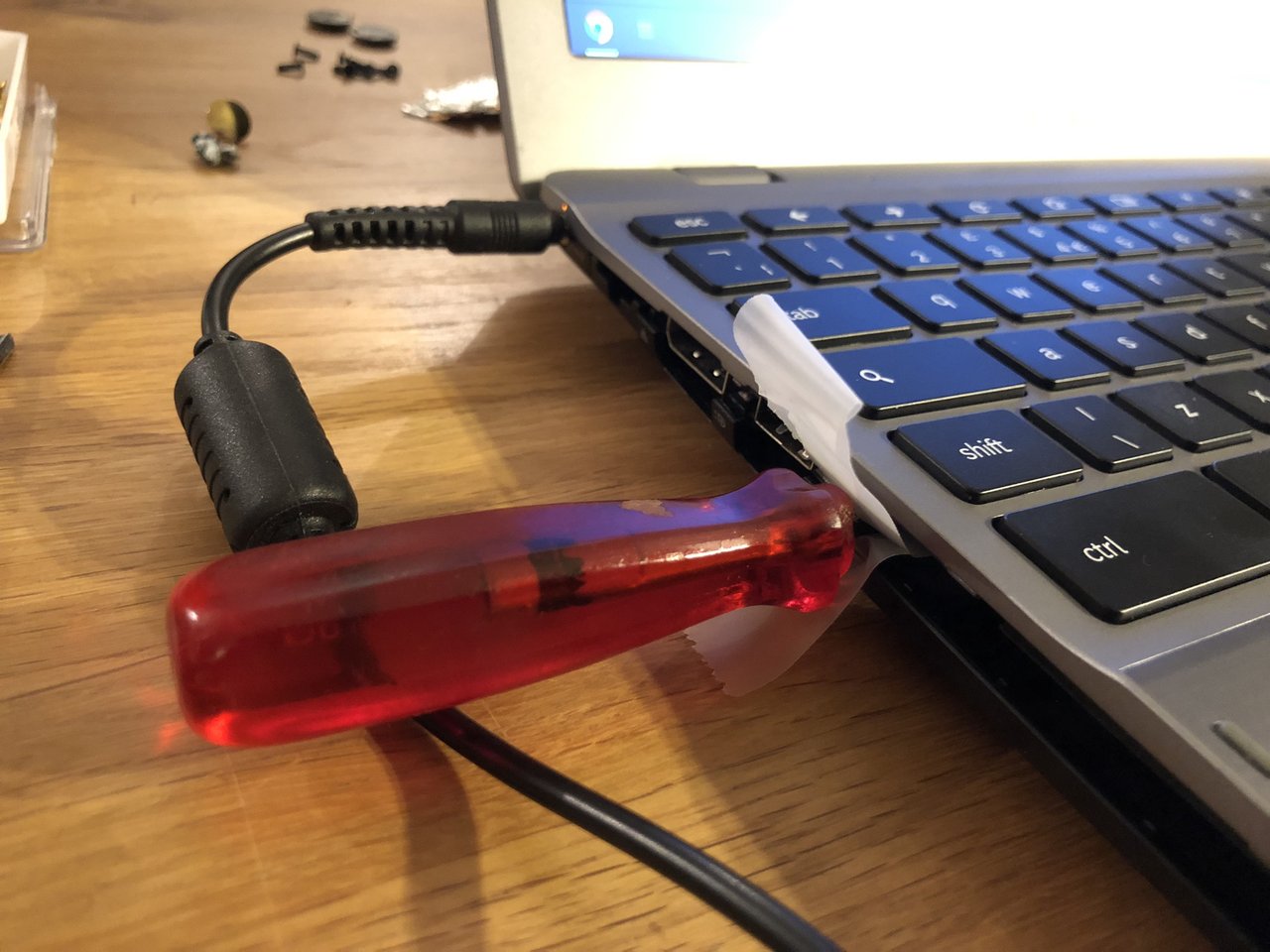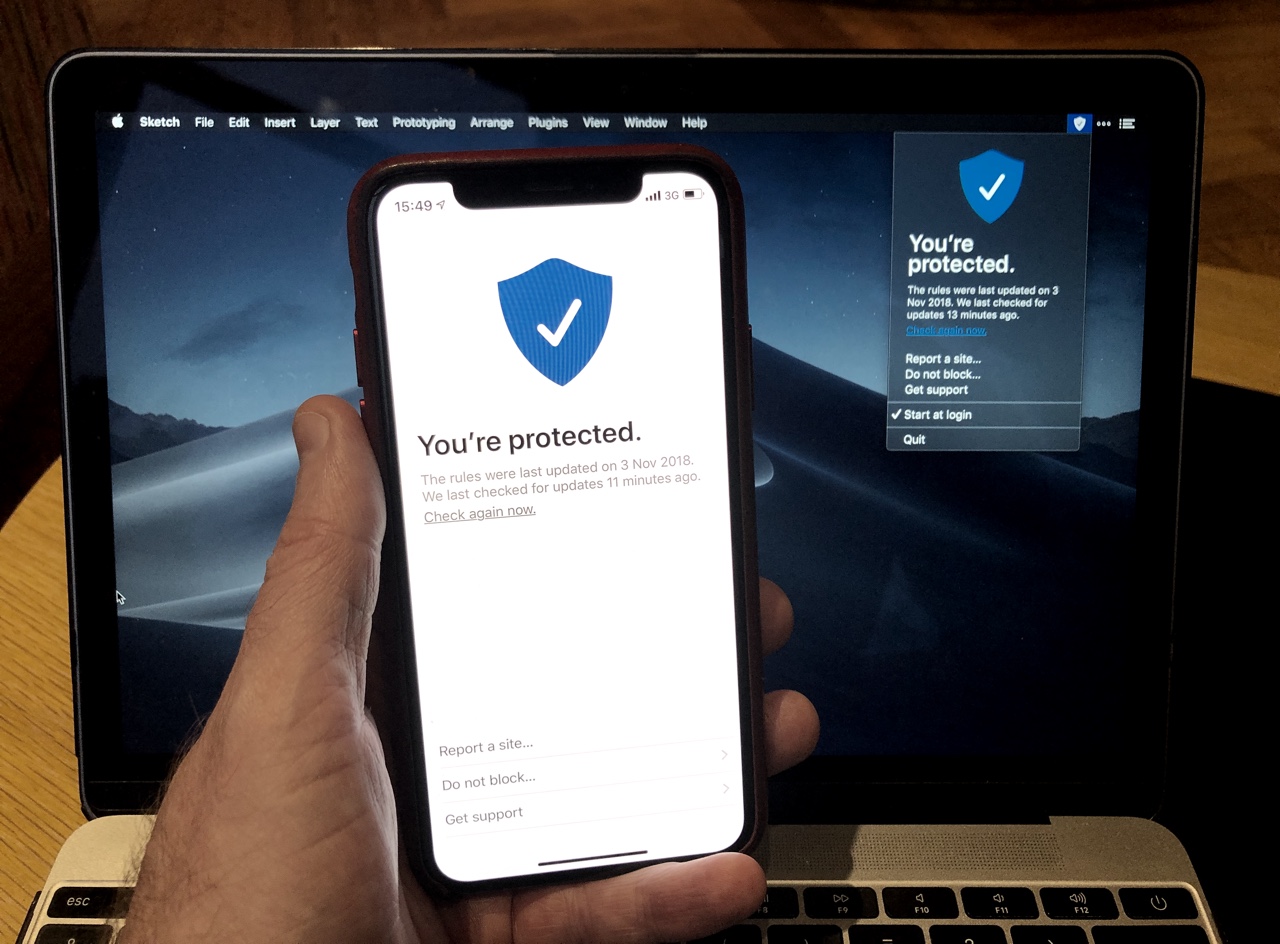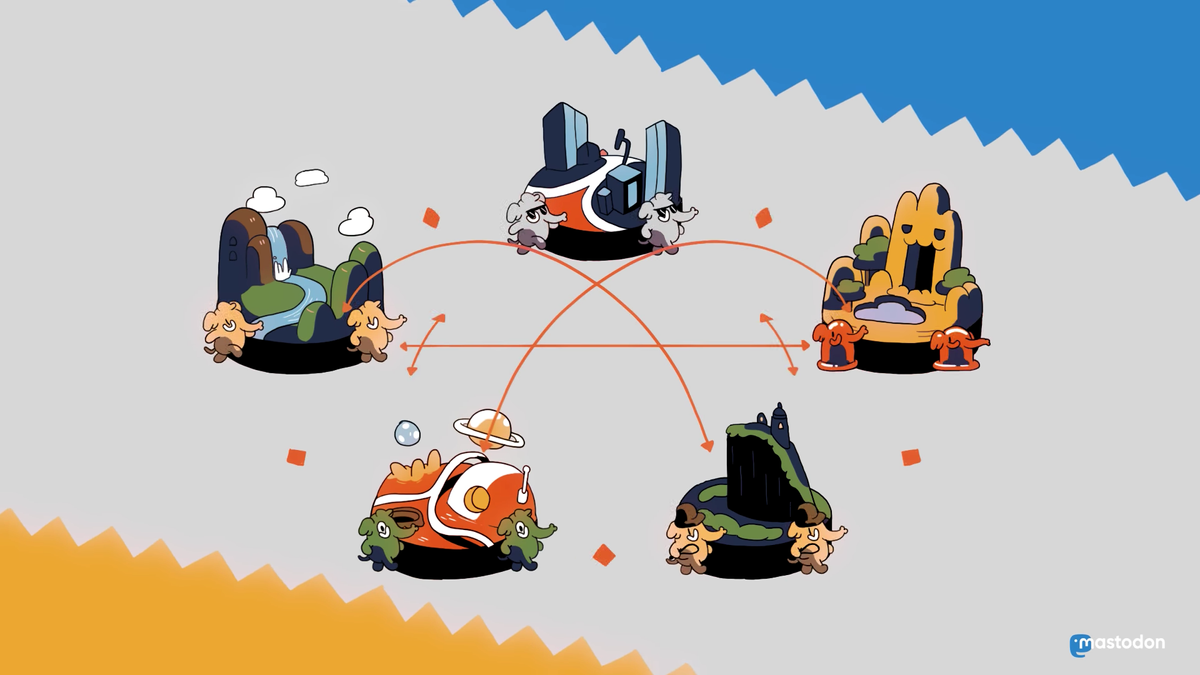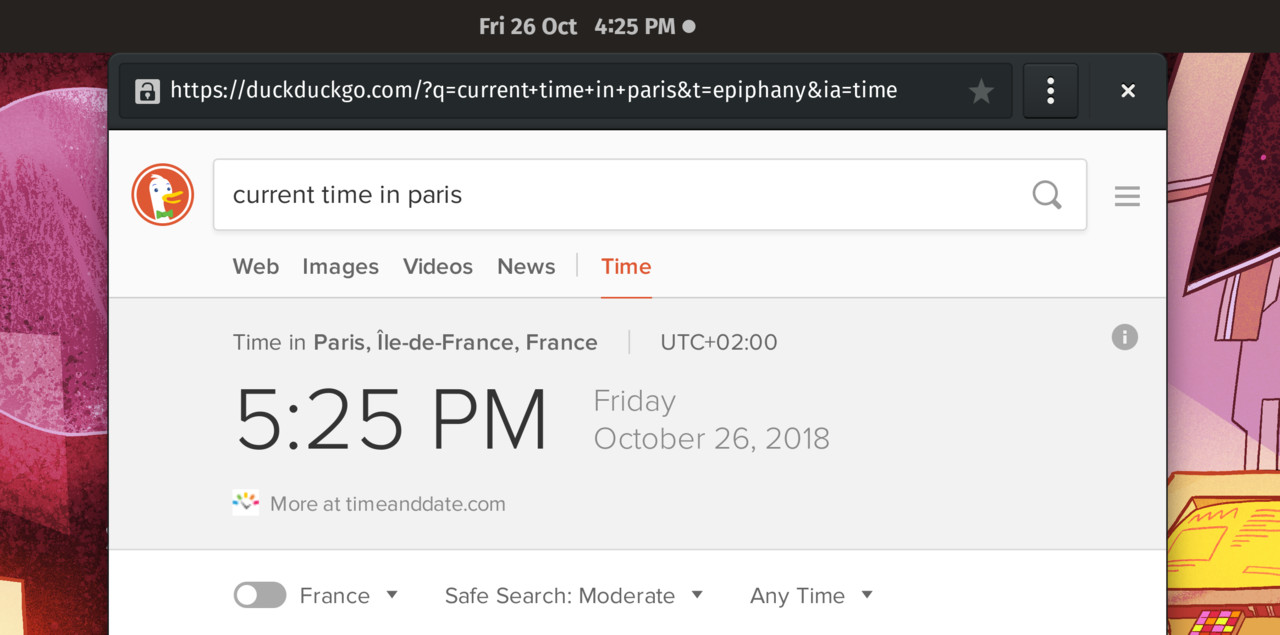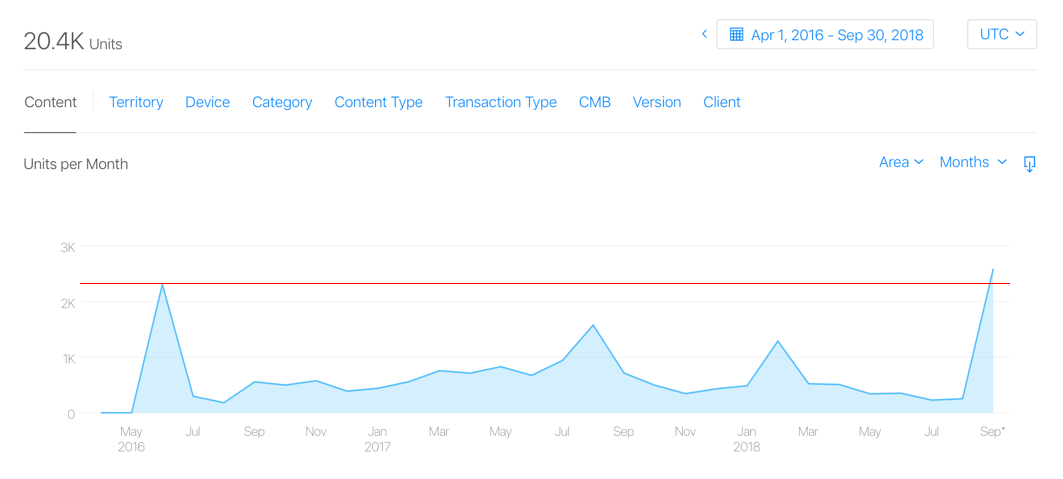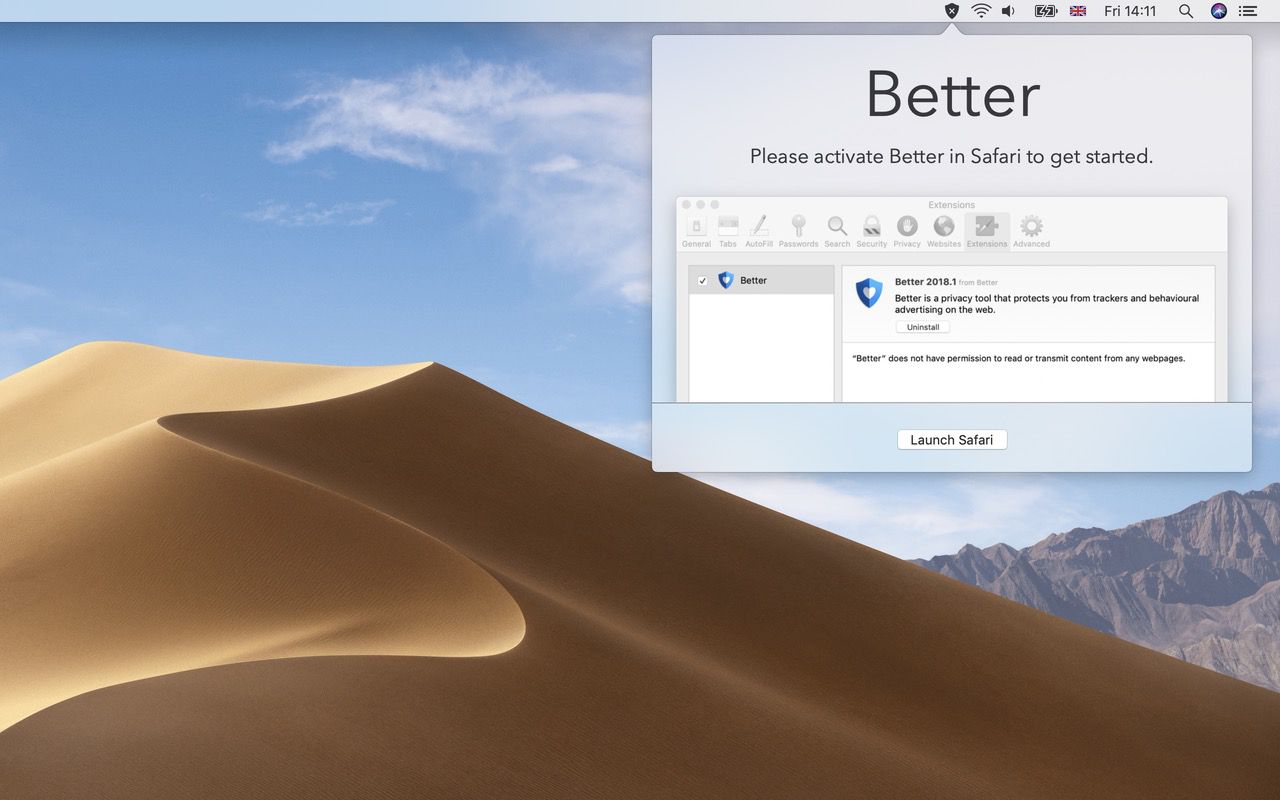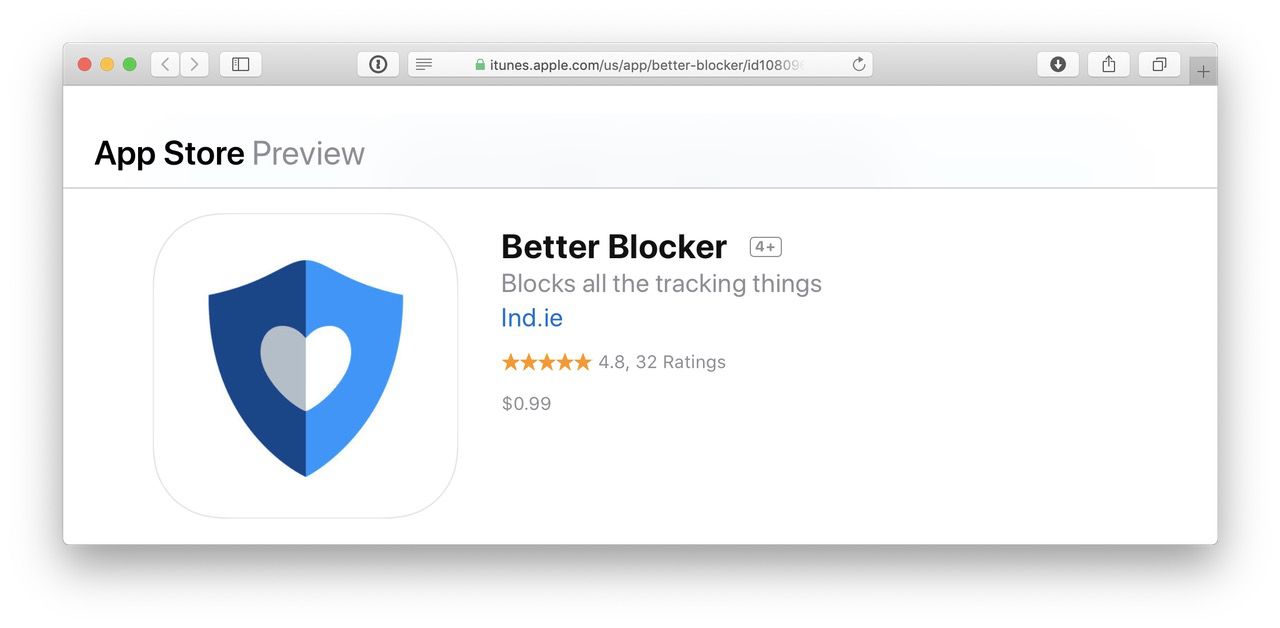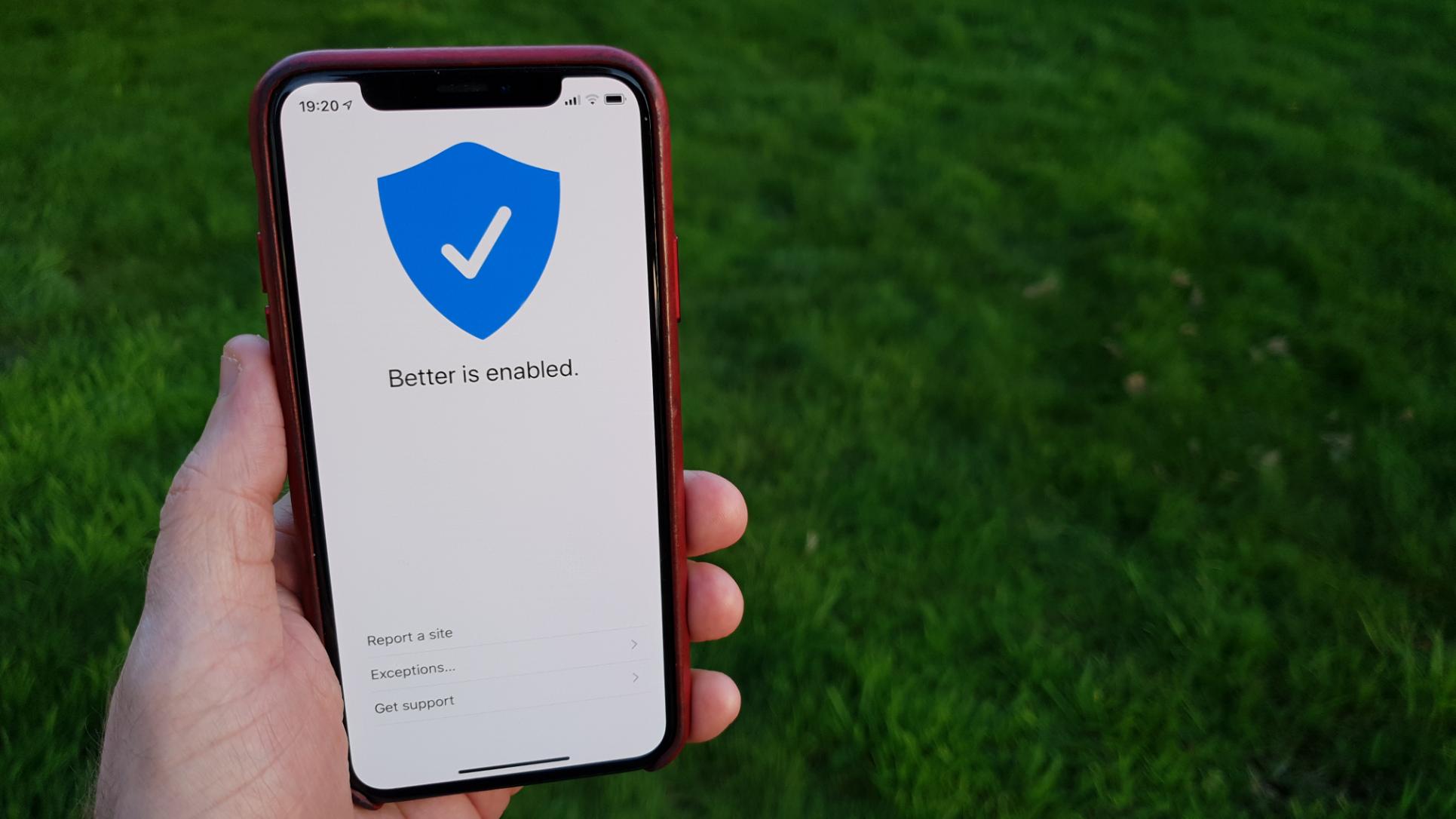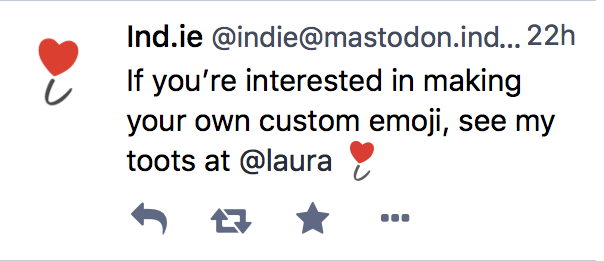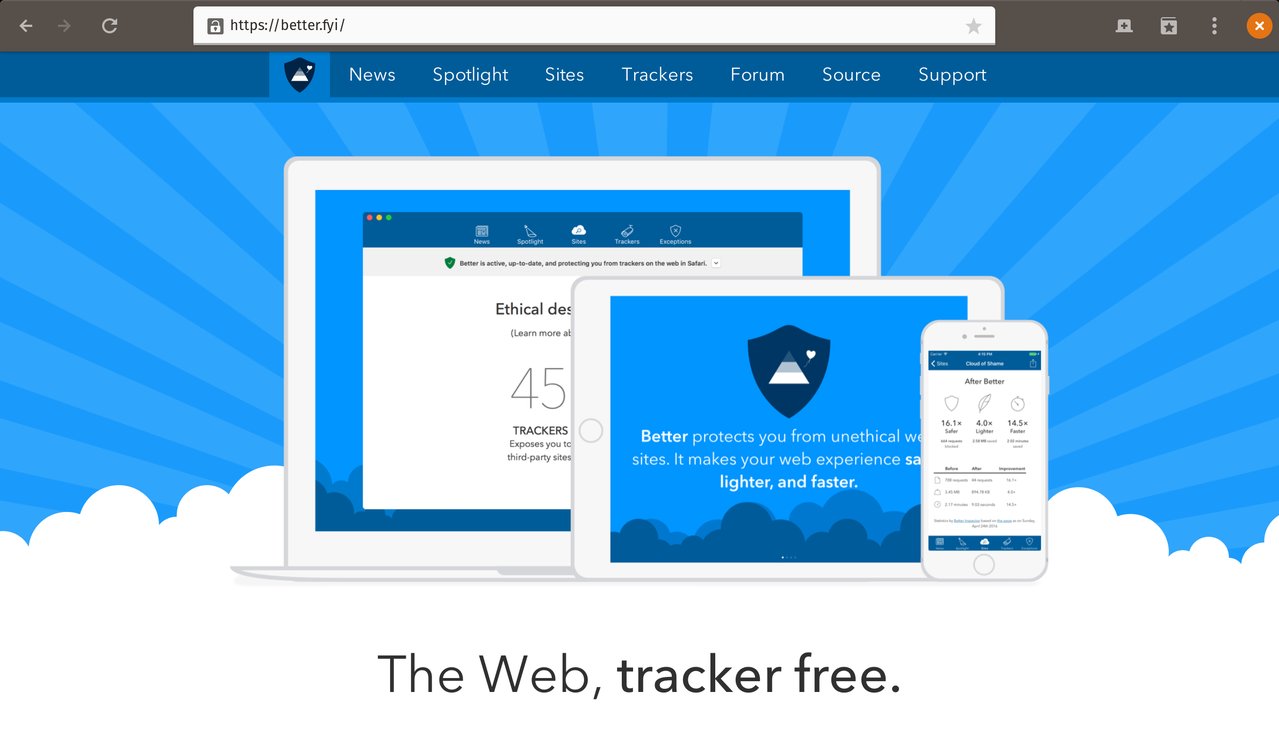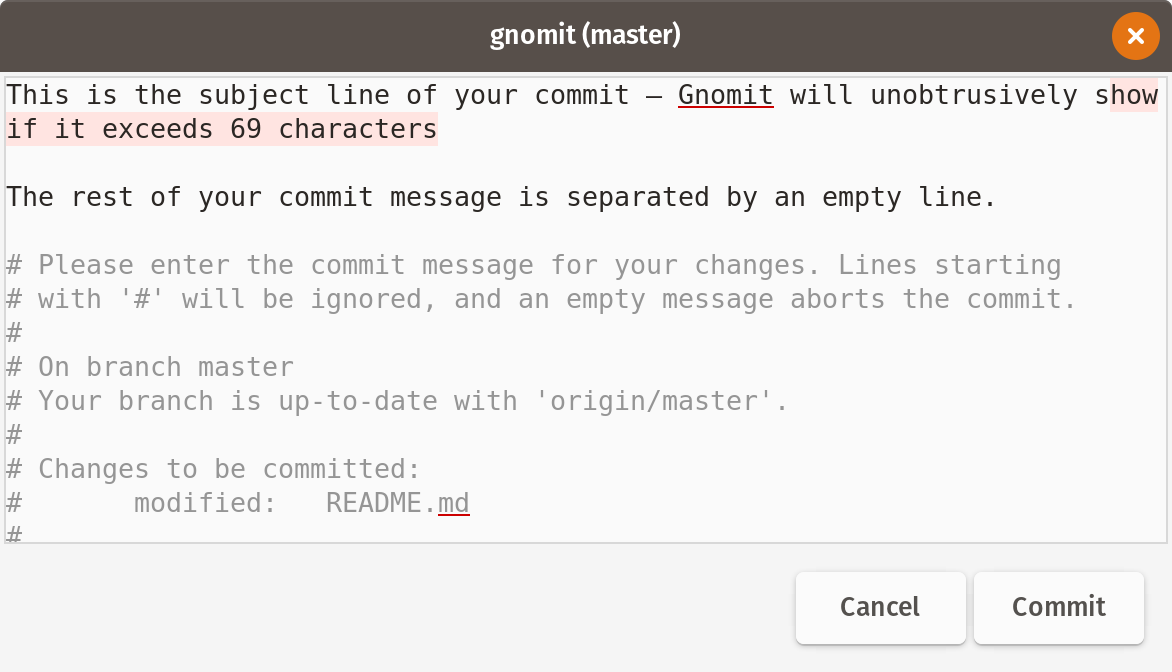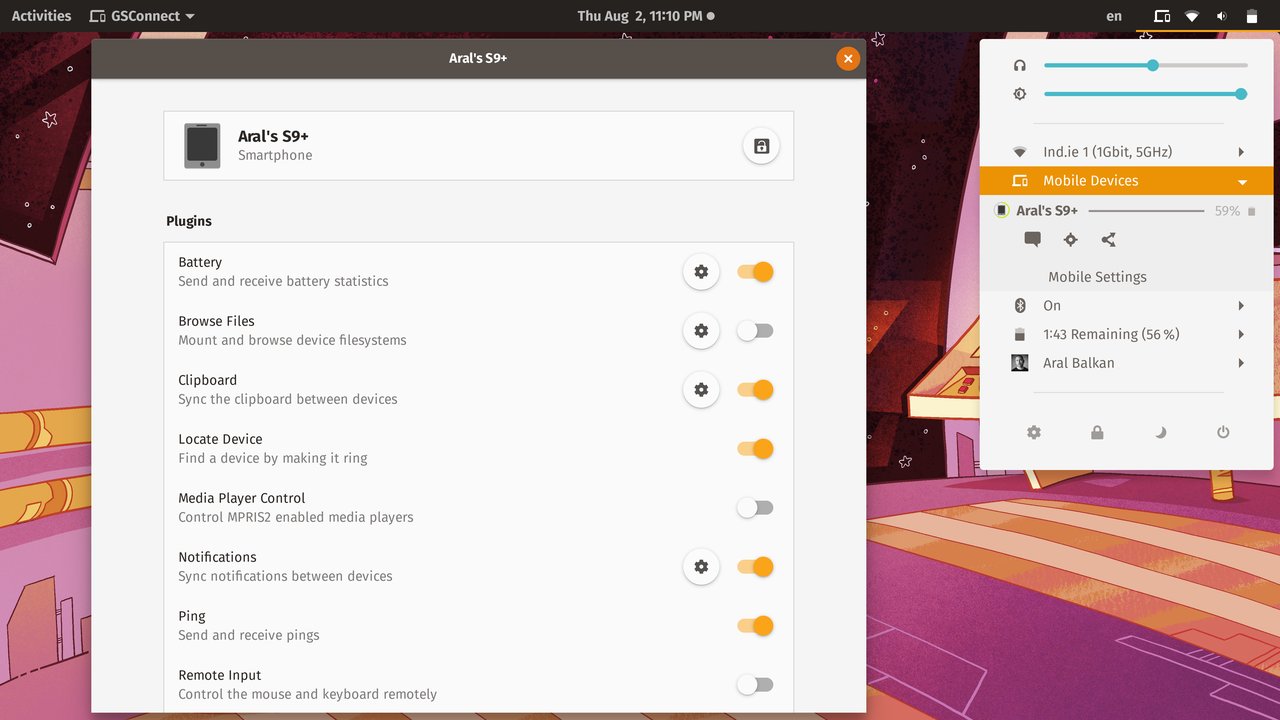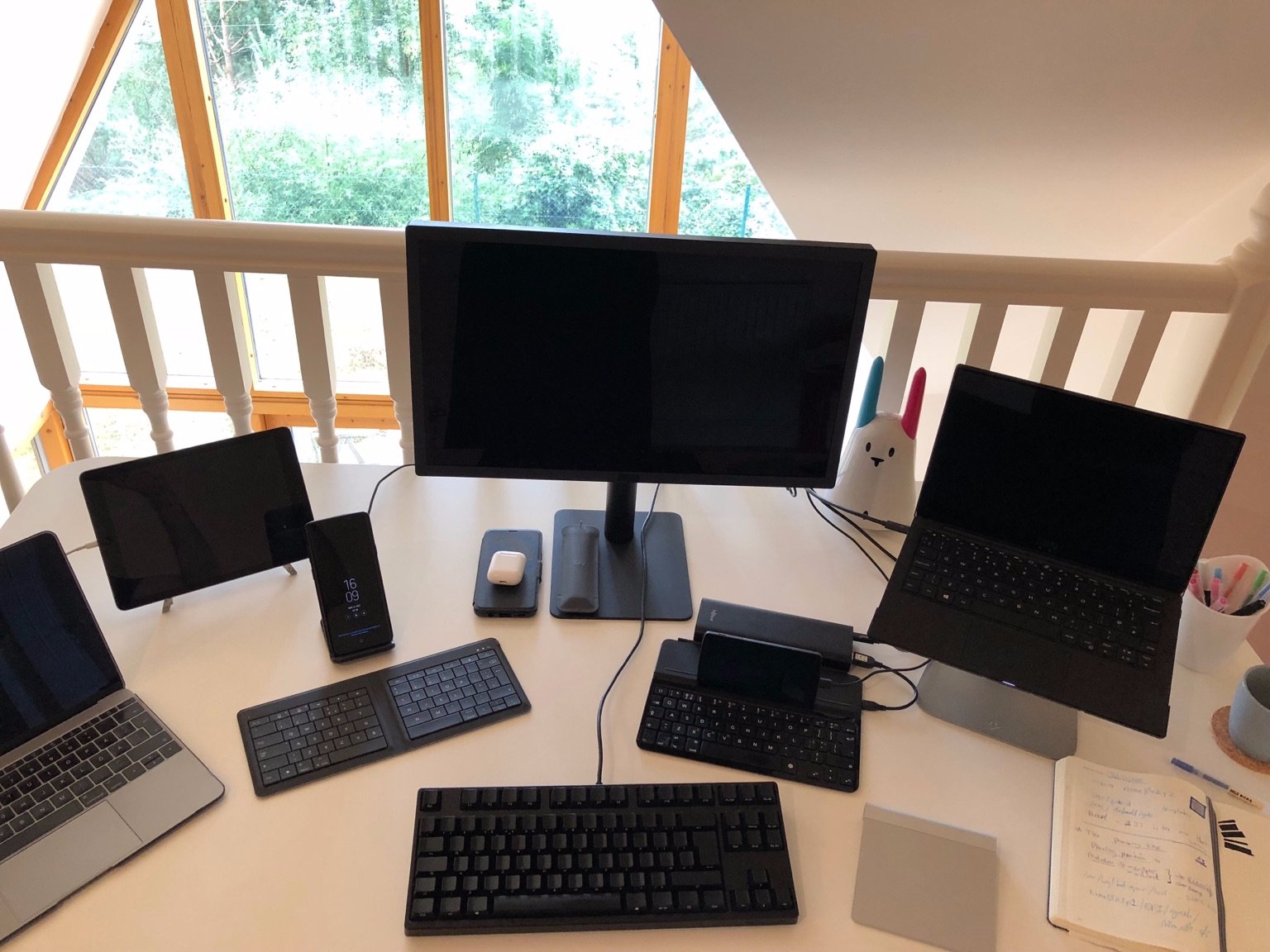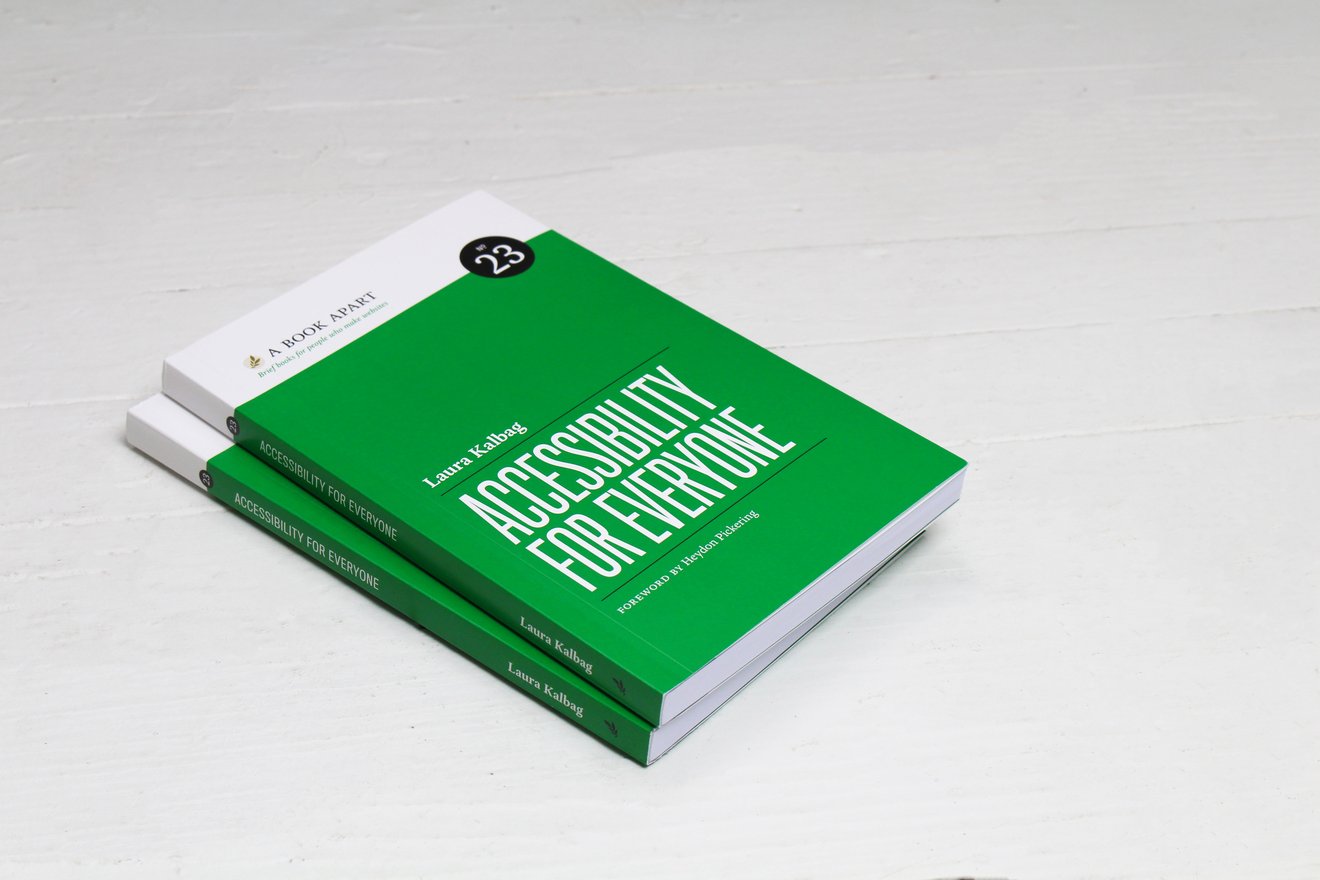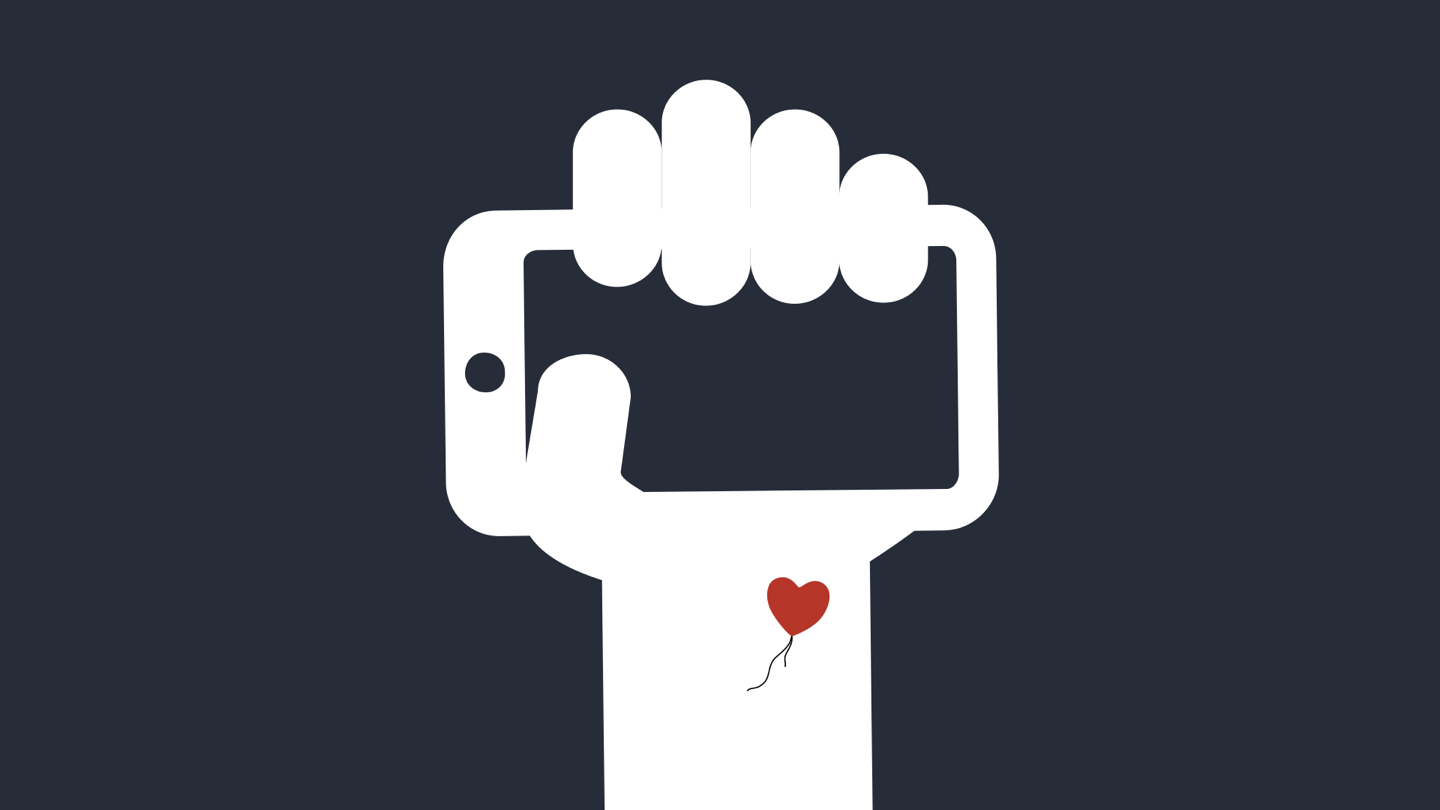News
Read the latest news and articles from Small Technology Foundation, as found on our personal sites and in other media coverage.
Subscribe to the news feed with RSS.
Careless people
Notes from “Careless People: A story of where I used to work: Power. Greed. Madness.” by Sarah-Wynn Williams
The book is a memoir by Sarah Wynn-Williams, who was Facebook’s director of global public policy. And, truth be told, I have a habit of listening when directors of global public policy tell me things. Like that time Mozilla’s told me I shouldn’t be so hard on them because they’re “just another Silicon Valley tech company.”
Optimal automation
Where optimal automation augments human abilities, excessive automation removes the human from the equation altogether. The concept of optimal automation can be a useful conceptual lens for analysis and policymaking as we tackle the self-imposed existential threats facing our species.
Kitten Kawaii: porting a React library and Next.js web site to Kitten
I stumbled on Muiki Miu’s (Elizabet Oliveira’s) adorable React Kawaii web site and wanted to use one of the characters in my Kitten app.
Instead of converting just the SVG component for the character I needed, I thought it would be a fun experiment to port the whole of React Kawaii, including its Next.js web site, to Kitten and, in the process, hopefully illustrate some of the differences between Big Web and Small Web.
It turned out to be a hugely eye-opening and worthwhile experience.
Small Web: computer science colloquium at University of Groningen
Two weeks ago, I presented a computer science colloquium on the Small Web at the University of Groningen in the Netherlands to post grad students and professors.
In the talk, I take you through what the Small Web is and the current state of Kitten, Domain, and Place.
New Kitten features: Interactive Shell (REPL), Multi-page Settings, and backup and restore (data portability)
In this video, Aral demonstrates the new features added to Kitten in May: including the new Interactive Shell (REPL), Multi-page Settings, and backup and restore (data portability).
Draw Together
Draw Together is a little collaborative drawing toy made with Kitten on a Saturday night. You can play with it on the page and watch a video where Aral takes you through the making of Draw Together, showcasing Kitten’s Streaming HTML workflow and native WebSocket features.
Streaming HTML
Kitten has a new experimental workflow for creating web apps called Streaming HTML that Aral introduces you in this video and accompanying article. Kitten, uniquely, enables you to build Small Web apps (peer-to-peer web apps). But it also aims to make creating any type of web app as easy as possible. The new Streaming HTML workflow is a big step in realising this goal.
End-to-end encrypted Kitten Chat
In this hour-and-a-half long Small is Beautiful live stream recording, Aral shows you how WebSockets, authenticated routes, and public-key encryption work in Kitten and uses them to create a centralised WebSocket chat application that he then evolves into an end-to-end-encrypted peer-to-peer Small Web chat application.
The web0 manifesto
web0 is web3 without all the corporate right-libertarian Silicon Valley bullshit.
How to send an email
How to send an email by speaking SMTP interactively to an email server. (This is how email works under the hood and it’s simpler than you might think. Play the video and follow along.)
Saying goodbye to Better Blocker
Better was a privacy tool for Safari on iPhone, iPad, and Mac. It protected you from behavioural ads and companies that track and profile you on the web. Better was loved by over 40,000 people on iOS and 15,000 people on Mac. It passed away following a tragic bout of fruit poisoning. Better is survived by two screeching voices of the minority, Laura Kalbag and Aral Balkan, working to create a better web in its memory.
Comet
Comet is a distraction-free Git commit message editor with spell-check, first line character limit warnings, and emoji support. Comet version 1.0 is now available to install on elementary OS 6.
Contributing to elementary OS
Aral contributed a new, more usable task switcher to elementary OS 6.
Apple is trying to redefine what it means to violate your privacy. We must not let it.
If Apple goes ahead with its plans to have your devices violate your trust and work against your interests, I will not write another line of code for their platforms ever again…
Working with Stately
From today, in addition to my work at Small Technology Foundation, I’ll be working with Stately on developer and designer relations as a contractor.
Better
New blocking rules! Laura blocked one blocker blocker, fixed three sites and blocked five new trackers. The rules will auto-update if the app is running. If it’s not, you can get the new rules by opening the app and choosing ‘Update rules’ or ‘Check again now’ from Better’s menu.
Better Blocking Rules Update
New blocking rules! On 25th May 2021, Laura blocked three blocker blockers, fixed five sites and blocked four new trackers. The rules will auto-update if the app is running. If it’s not, you can get the new rules by opening the app and choosing ‘Update rules’ or ‘Check again now’ from Better’s menu. Thank you to all our donors and patrons who help us continue our work! 💙 If you want to support us, you can tell your friends about our work, leave us a review for Better, gift the app to someone else, or even become a donor or monthly patron.
Hell site
They have a word for Twitter on the fediverse. They call it ‘hell site’. It’s very apt. When I first joined about 15 years ago, at the end of 2006, it was a very different place. A small, non-algorithmically curated space where you could have group chats with your friends. What I didn’t know back then was that Twitter, Inc., was a venture-capital-funded startup.
Ethics as PR (or the ‘Some Very Good People Work There!’ Fallacy)
There’s been a lot of research into “Ethics in AI” recently and it’s being sponsored and led by… checks notes… surveillance capitalists like DeepMind. Similarly, lots of people are working on “Ethics in Health” at Philip Morris and “Ethics in Environmentalism” at ExxonMobil. OK, I made the last two up. Did you notice? (I guess it was pretty blatant.) Because, clearly, that would be ethicswashing. So how come we accept the first?
Better Blocking Rules Update
New blocking rules! Laura blocked a blocker blocker, fixed eight sites and blocked four new trackers. The rules will auto-update if the app is running. If it’s not, you can get the new rules by opening the app and choosing ‘Update rules’ or ‘Check again now’ from Better’s menu.
Better Blocking Rules Update
New blocking rules! Laura blocked a blocker blocker, fixed a site and blocked ten new trackers. The rules will auto-update if the app is running. If it’s not, you can get the new rules by opening the app and choosing ‘Update rules’ or ‘Check again now’ from Better’s menu.
Better Blocking Rules Update
New blocking rules! Laura blocked three blocker blockers, fixed six sites and blocked six new trackers… The rules will auto-update if the app is running. If it’s not, you can get the new rules by opening the app and choosing ‘Update rules’ or ‘Check again now’ from Better’s menu.
A little site update
In our Small is Beautiful #2 livestream, I spoke about how I spent a lot of last year creating a Hugo starter theme for Site.js. We decided to move in a different direction with Site.js, but I’d built so much cool stuff into this new theme (please let me be pleased with myself for once!) it seemed a waste to not make use of it.
Better Blocking Rules Update
New blocking rules! Laura blocked one blocker blocker, fixed five sites and blocked five new trackers. The rules will auto-update if the app is running. If it’s not, you can get the new rules by opening the app and choosing ‘Update rules’ or ‘Check again now’ from Better’s menu.
Better Blocking Rules Update
New blocking rules! Laura blocked three blocker blockers, fixed five sites and blocked five new trackers. The rules will auto-update if the app is running. If it’s not, you can get the new rules by opening the app and choosing ‘Update rules’ or ‘Check again now’ from Better’s menu.
Better Blocking Rules Update
New blocking rules! Laura blocked one blocker blocker, fixed five sites and blocked eight new trackers. The rules will auto-update if the app is running. If it’s not, you can get the new rules by opening the app and choosing ‘Update rules’ or ‘Check again now’ from Better’s menu.
What is the Small Web?
Today, I want to introduce you to a concept – and a vision for the future of our species in the digital and networked age – that I’ve spoken about for a while but never specifically written about: The Small Web. To understand what the Small Web is, let’s compare it to the Big Web. In other words, to the centralised Web we have today.
Live Stream: A web site on your phone with Site.js
A sneak peek at hosting a web site on a PinePhone using Site.js 14.2.0 Alpha.
Mentoring the Eastern Partnership Civil Society Online Hackathon
Laura and I will be mentoring teams developing civil society applications at the Eastern Partnership Civil Society Online Hackathon.
Better Blocking Rules Update
New blocking rules! Laura blocked one blocker blocker, fixed five sites and blocked two new trackers. The rules will auto-update if the app is running. If it’s not, you can get the new rules by choosing ‘Update rules’ or ‘Check again now’ from Better’s menu.
A happy ending to the Better Blocker saga
TL; DR: Apple have been in touch and offered us a way to migrate to our new not-for-profit without impacting the experience of existing Better Blocker customers.
Apple App Review: resistance is futile!
Last time on Dances With Drones, Apple had accepted the iOS version of Better Blocker but rejected the macOS one because of invalid app metadata even though both apps had the same metadata.
Apple App Review says “maybe”: the whims of trillion-dollar gatekeepers
Yesterday, I wrote about how Apple’s refusal to update a couple of fields in their database has impacted the future of Better Blocker, the tracker blocker that Laura and I build at our tiny two-person not-for-profit, Small Technology Foundation. I also shared our plan for dealing with this situation. Yesterday, we were at Step 3 of our plan. We’d submitted the version 2020.1 updates to Better for macOS and iOS from our old developer account and we were waiting for Apple to approve them.
The future of Better Blocker
Aral has written a detailed blog post about the logistics of moving our app, Better Blocker, to our Irish organisation. In brief: we have to re-publish the app under Small Technology Foundation, which means anyone who wants to get future updates to the app will have to buy it again. (Though the previous version of the app will still be able to receive updates to the blocking rules.) We will lose years of favourable reviews, high rankings in our category, and a feature on the Safari App Extensions page.
Closing the Ind.ie forum
Over the last few days, we closed the Ind.ie forum. It had been a fun experiment for 4.5 years, but didn’t really fit our aims to create decentralised technology. We didn’t want to shun other big platforms in favour of creating our own big platform, it would defeat the point!
“Apple Says ‘No!’” and what that means for the future of Better Blocker following our move to Ireland
In my previous blog post, I asked Apple for a little help with a problem we had with Better Blocker after moving to Ireland and setting up a new not-for-profit here… Last week, we got a definite “computer says no” from Apple’s “developer support.
In 2020 and beyond, the battle to save personhood and democracy requires a radical overhaul of mainstream technology
As we enter a new decade, humankind faces several existential emergencies: The climate emergency The democracy emergency The personhood emergency In no small part thanks to Greta Thunberg, we’re definitely talking about the first. Whether we’re actually doing anything about it, of course, is very much up for debate. Similarly, thanks to the rise of the far right around the globe in the shape of (among others) Trump in the US, Johnson in the UK, Bolsonaro in Brazil, Orban in Hungary, and Erdoğan in Turkey, we are also talking about the second, including the role of propaganda (so-called “fake news”) and social media in perpetrating it.
Dear Apple, a little help here? How hard can it be to move our developer account to our new not-for-profit?
Dear Apple, We’re a tiny two-person not-for-profit. We used to be based in the UK, where we were known as Ind.ie (and incorporated as a not-for-profit called Article 12). We left the UK (for reasons) and now we have a not-for-profit here in Ireland called Small Technology Foundation. It’s still just Laura and me (and our huskamute, Oskar). We have an app called Better Blocker that’s on sale on the iOS and macOS app stores.
The Future of Internet Regulation at the European Parliament
Last week, I gave three talks in Belgium, starting with one titled “Dear regulators, please don’t throw the baby out with the bathwater” at an event on The Future of Internet Regulation organised by the Greens and Pirates at the European Parliament on Tuesday. You can watch it via the Peertube embed, above [on Aral’s site], thanks to the lovely folks at La Quadrature du Net who took the initiative to rip the recording of the live stream and host it on their own instance.
Small Technology Foundation Personal Web Prototype-01: a mobile personal web server
Imagine holding your personal web site in the palm of your hand. Imagine carrying the digital aspects of your self in your pocket instead of having them on some abstract cloud under the watchful eye of some faceless multinational corporation.
Introducing @small-tech/https
Introducing @small-tech/https, a batteries-included drop-in replacement for the Node.js https module.
Site.js: now with auto updates in production
Site.js version 12.10.2 introduces automatic updates in production.
Site.js: now with auto server reload on source code changes
Site.js version 12.9.7 brings the second developer experience improvement to Site.js in as many days with an integrated auto reload feature that responds to source code changes on dynamic sites.
Site.js: now with live reload
I just released version 12.9.6 of Site.js with live reload support for static pages. There’s also a fix for the update command, so please update to this version so that you can keep updating using the update command when we move to 12.10.x and beyond.
The little Raspberry Pi that could (serve a web site)
Yesterday, I asked folks following me on my Mastodon1, if they’d help me blow up my Raspberry Pi Zero W…
Site.js: now easier than ever to update
I just released Site.js version 12.9.5. This version brings with it some new commands, the most important of which is the update command.
Site.js and Pi
Yesterday, I released Site.js 12.8.0 which brings initial ARM support for Linux. What that means is that it’s now easier than ever to get a static or dynamic (Node.js) web server up and running on a Raspberry Pi.
Build a simple chat app with Site.js
This weekend, I released Site.js version 12.7.0 with improvements to its WebSocket interface. Today, I want to take you step-by-step through building and running a basic chat app using Site.js. It’s much easier than you think, so fire up a terminal window, grab your code editor, and let’s get started!
Site.js, now also on Windows 10
Last week, I bought a refurbished 7-year-old ThinkPad 440p so I could test Site.js under Windows. Long story short, Windows is still shit. Plus, it’s now also a cesspit of surveillance. And, over the weekend, I ended up adding native Windows 10 support to Site.js.
A belated introduction to Small Technology Foundation
About a month ago, Aral and I launched Small Technology Foundation. In the frenzied rush to get the site up, and general life chaos that has overwhelmed me since, I’d not managed to write about it until now.
Introducing Laura’s Lens
Over the last five years or so, I’ve been sharing links to insightful articles with a critical view of technology. It started as Ind.ie’s weekly roundup email, but I found writing a long summary was taking me too long every week (I’m no journalist!) So the roundups evolved into Ind.ie’s daily Radar, where I’d post daily links, quoting some of the best bits, which I’d also post to @indie on Mastodon and @indie on Twitter…
Better Blocking Rules Update
New blocking rules! Laura blocked adtech on one site, and blocked five new trackers. The rules will auto-update if the app is running. If it’s not, you can get the new rules by choosing ‘Update rules’ or ‘Check again now’ from Better’s menu.
Why much of the internet is closed off to blind people
A few weeks ago, I chatted to James Jeffrey for a BBC article on Why much of the internet is closed off to blind people. In particular, I spoke to how easy it can be to make a website accessible, and why it should be part of our everyday practice as designers and developers.
Introducing Small Technology Foundation, Site.js, and Tincan
Today, Laura and I want to introduce you to Small Technology Foundation, where we will be continuing the work we started at Ind.ie five years ago.
Where I’m speaking in Summer/Autumn 2019
This summer/autumn, I’m speaking at conferences in Amsterdam, London and Edinburgh. This year I’ve had mixed experiences with speaking, so I’m being picky about future talks. So I’m looking forward to the following…
This One Weird Trick Tells Us Everything About You
I wrote a little essay for Smashing Print #1: Ethics & Privacy titled ‘This One Weird Trick Tells Us Everything About You.’ It covers different types of tracking and how it came to exist, as well as regulation, ethics, and why we need better business models.
Better Blocking Rules Update
New blocking rules! Laura blocked adtech on one site, fixed one site and blocked two new trackers. The rules will auto-update if the app is running. If it’s not, you can get the new rules by choosing ‘Update rules’ or ‘Check again now’ from Better’s menu.
Have you heard about Silicon Valley’s unpaid research and development department? It’s called the EU.
Who should you thank for Facebook’s Libra? “One of the UK’s leading privacy researchers” University College London The DECODE project And, if you’re an EU citizen who pays their taxes, -You. Surprised? Don’t be.
Like It or Not, We’re Already Cyborgs
To privacy activists Aral Balkan and Laura Kalbag, we don’t need brain implants to become cyborgs; we’re already jacked in. And we need a Universal Declaration of Cyborg Rights.
Better Blocking Rules Update
New blocking rules! Laura fixed two sites, and blocked four new trackers. The rules will auto-update if the app is running. If it’s not, you can get the new rules by choosing ‘Update rules’ or ‘Check again now’ from Better’s menu.
Better Blocking Rules Update
New blocking rules! Laura fixed two sites, and blocked four new trackers. The rules will auto-update if the app is running. If it’s not, you can get the new rules by choosing ‘Update rules’ or ‘Check again now’ from Better’s menu.
The Do’s and Don’ts of Tech Regulation
Yesterday, I was interviewed on Al Jazeera news about the Macron-Zuckerberg meeting (Warning: the linked page on Al Jazeera includes privacy-eroding trackers, including Facebook.)1 in which they apparently decided on a framework of “co-regulation.” This is not what I mean when I talk about the need to regulate surveillance capitalists.
Better Blocking Rules Update
New blocking rules! Laura blocked one blocker blocker, fixed two sites, blocked cookies for one tracker, and blocked seven new trackers. To get the new rules, choose ‘Update rules’ or ‘Check again now’ from Better’s menu. If you keep the macOS app open, the rules should auto-update.
Slavery 2.0 and how to avoid it: a practical guide for cyborgs
This is the original English version of an article that I wrote for Issue 32 of the Kulturstiftung des Bundes (The German Federal Cultural Foundation) magazine. You can also read the German version.
Indie Web Server 9.0.0: Housekeeping
I just released Indie Web Server version 9.0.0. This is mostly a housekeeping release and nearly all the changes are under the hood.
Indie Web Server 8.2.0: Cascading archives for an evergreen web
I just released version 8.2.0 of Indie Web Server. This version brings with it a cascading archives feature to make it easier than ever for you to support an evergreen web and not break existing links as you evolve your sites.
Indie Web Server 8.1.1: Reverse proxy (local mode)
I just released Indie Web Server version 8.1.1 which introduces a reverse proxy feature.
This site [ar.al] now runs on Indie Web Server
In the interests of eating my own hamster food1, I just switched this site from nginx to Indie Web Server. The only complication in the process was that I had to update the hostname of the server to match the domain name.
Better Blocking Rules Update
New blocking rules! Laura blocked first-party adtech on one site and blocked nine new trackers. To get the new rules, open the app on iOS, or choose ‘Update rules’ from the menu on macOS.
Set up a live static personal web site in seconds with Indie Web Server 8.0.0
On April 1st (no joke), Indie Web Server 7.1.0 introduced the ability to set up a live static web site in seconds on any server that had Node.js installed.
Two weeks of hitting my head on a wall and multiple rewrites later, Indie Web Server 8.0.0 now lets you do that without Node.js thanks to native binaries for Linux.
You can now literally go from installing the server to serving a fire and forget secure personal web site in seconds…
Indie Web Server 7.1.0: Launch a live secure static site with a single command
You have: a VPS with a domain name pointing to it and Node.js installed. You want: to deploy a secure, live static site. You do: npm i -g @ind.ie/web-server && web-server --live Hit your domain name in a browser.
Better Blocking Rules Update
New blocking rules! Laura blocked three blocker blockers, fixed one site, and blocked four new trackers. To get the new rules, open the app on iOS, or choose ‘Update rules’ from the menu on macOS.
Indie Web Server: now with native 404 to 302 support for an evergreen web
What if links never died? What if we never broke the Web? What if it didn’t involve any extra work? It’s possible. And easy. Just make your 404s into 302s. Indie Web Server now has native support for 404 to 302.
Custom error pages for Indie Web Server
I just released Indie Web Server version 6.3.0 with new default 404 and 500 error pages and support for custom ones.
Upcoming talks: April
In April, I will be speaking at two events, starting with The Straits Times Education Forum debate on entrepreneurship to be held at Singapore Management University on April 6th, 2019.
Introducing Indie Web Server (video)
I just recorded a short video demonstrating just how simple and seamless Indie Web Server really is.
Better Blocking Rules Update
New blocking rules! On 13th March 2019, Laura blocked one blocker blocker, and fixed two sites. To get the new rules, choose ‘Update rules’ or ‘Check again now’ from Better’s menu.
Indie Web Server
Indie Web Server is a secure and seamless Small Tech personal web server.
Upcoming talks: March
I’m giving two talks this month; at Le Grand Barouf Numérique in Lille, France on the 20th and at the Art, Technology, and Change conference at CPH:DOX, the Copenhagen International Documentary Film Festival in Copenhagen, Denmark on the 26th.
HTTPS Server
HTTPS Server is a development server that uses nodecert to automatically provision and use locally-trusted TLS certificates.
Nodecert
Nodecert is a Node.js module and command-line tool that automatically provisions locally-trusted TLS certificates for your development environment using mkcert.
Better Blocking Rules Update
New blocking rules! Laura blocked two blocker blockers, fixed one site, and blocked seven new trackers. To get the new rules, choose ‘Update rules’ or ‘Check again now’ from Better’s menu.
Small Technology
The antidote to Big Tech is Small Tech. Big Tech, with its billion-dollar unicorns, has robbed us of the potential of the Internet. Fueled by the extreme shortsightedness and greed of venture capital and startups, the utopic vision of a decentralised and democratic commons has morphed into the dystopic autocracy of Silicon Valley panopticons that we call surveillance capitalism. This status quo threatens not just our democracies but the very integrity of our personhood in the digital and networked age.
Better Blocking Rules Update
New blocking rules! Laura blocked one blocker blocker, fixed one site, and blocked four new trackers.
Hypha: Glossary
This is a work-in-progress glossary of terms for Hypha.
Privacy is not a science, it is a human right
Given the levels of institutional corruption in academia and in the regulatory bodies and advocacy institutions that should be protecting our privacy, very few things shock me these days. So hats off to Bart van der Sloot for managing the impossible and finding a new low by framing institutional corruption as scientific neutrality in his article Dubbele petten in de privacywetenschap…
On the General Architecture of the Peer Web (and the placement of the PC 2.0 era within the timeline of general computing and the greater socioeconomic context)
The first era of general computing was the mainframe era and it was centralised. The second, the personal computing (PC 1.0) era, was decentralised. The third is the Web era (let’s call it Mainframe 2.0). And it is, once again, centralised. Today, we find ourselves at the end of the Mainframe 2.0 era and on the precipice of a new chapter in the history of general computing: the Peer Web. Let’s call it the Personal Computing 2.
Hypha Spike: Persistence 1
Following on from Hypha Spike: Multiwriter 2 this spike aims to: Use persistent storage and evolve the sign-up/sign-in processes accordingly.
Better Blocking Rules Update
New blocking rules! On 2nd February 2019, Laura fixed one broken site, blocked a blocker blocker on another site, and adtech on a third site. To get the new rules, open the app on iOS, or choose ‘Update rules’ from the menu on macOS.
Hypha Spike: Multiwriter 2
Following on from Hypha Spike: Multiwriter 1 this spike aims to: Simplify the node authorisation flow to a simple authorisation alert on already-authorised nodes.
Hypha Spike: Multiwriter 1
Following on from Hypha Spike: WebRTC 1 and Hypha Spike: DAT 1, this spike aims to explore: Explore the current state of multiwriter in the DAT world.
Ethical design is not superficial
We are seeing more and more organisations starting to talk about ethical design. Unfortunately I suspect this has less to do with caring about the impact of unethical design on society, democracy and the environment, and more to do with organisations attempting to distance themselves from similar businesses who are finding it impossible to continue to disguise their toxicity.
Hypha Spike: WebRTC 1
Following on from (and in conjunction with) the Hypha Spike: DAT 1, this spike aims to: Replicate a hypercore from browser-to-browser using WebRTC.
Hypha Spike: Diceware
Pulled out from Hypha Spike: DAT 1. Use Diceware for passphrase generation to ensure a high-entropy process. Use budo in the spikes to enable lightweight use of bundling/modules/etc.
Hypha Spike: DAT 1
Following on from Hypha Spike: Diceware, this spike aims to explore: Creating an in-browser DAT data store using the keys generated in the previous spike Replicating that datastore over a web socket connection with the always-on node and making it available over UTP.
I was wrong about Google and Facebook: there’s nothing wrong with them (so say we all)
It’s always difficult admitting you’re wrong. But sometimes, it’s exactly what you have to do in the face of overwhelming evidence to the contrary. So, today, I admit that I was wrong about Google, Facebook, and surveillance capitalism in general being toxic for our human rights and democracy. You see, it simply cannot be true given how they are endorsed by some of the most well-respected groups and organisations in the world.
Hypha Spike: Aspect Setup 1
Your identity – your self – is a sharded aggregate of information. For an organism to have integrity it must have ownership and control over the aggregate of these various elemental shards that, combined, constitute its being. In Hypha, I will call these shards aspects.
Deployment-first development
Independent technology – ethical technology – must be as accessible as possible for its intended audience at every step of the process. That doesn’t mean it must be accessible as possible to everyone at every stage in its development but rather it should be accessible as possible for the people that are working on it or with it at any given point. Hypha is currently at the start of its development stage and thus must be as accessible as possible to developers who want to follow along with its development, run it themselves, and possibly fork it off and try new things with it.
Success criteria for the PC 2.0 era
Own and control your own identifiers. No privileged nodes. Effortlessly own and control your own always-on node on the Internet.
The post-Web is single tenant
Hypha is an exploration of what personal technology means in the digital/networked age. The goal is to create a bridge from the Mainframe 2.0 era to the Peer Computing (PC 2.0) era1. When we talk about scale in peer computing, our focus is on creating systems that are human-scale.
Hypha Spike: Deployment 1
Wait, what, we’re deploying Hypha – but we haven’t even built it yet?! Exactly.
Al Jazeera News interview: French “tech tax”
Aral’s live interview on Al Jazeera News today on France pushing forward alone with a new tax on big tech companies.
Sometimes you have to stick a screwdriver in it (or how to liberate a Chromebook in ten easy steps)
Over the holidays, I found a Chromebook that Samsung had given me to evaluate about six years ago and which had been gathering dust ever since. Coincidentally, Laura’s sister Annie had just told me that she needed a laptop. Hmm… Well, there was no way I was going to give her a Google spy device, so I decided to liberate the Chromebook from Google’s surveillance-based operating system (ChromeOS) and gift it to her.
What does a private communicator look like?
Hypha is not about building a single product. It’s about exploring the possibilities and problem domain of private communication and what it means to have technology that enables privacy (and therefore personhood). At the same time, it isn’t about designing from the inside out. It’s not about building the protocols and waiting for the tools to happen. It’s about experimenting with both. And, in the process, hopefully sparking one or more everyday things that enable people to communicate with privacy.
Kappa Architecture workshop
Kappa Architecture Workshop is an excellent online resource by Stephen Whitmore (of Cabal fame), Mathias Buus (one of the cornerstones of the DAT Project), et al., that gives you an introduction to Kappa Architecture using modules from the DAT Node.js ecosystem like hypercore, multifeed, discovery-swarm and kappa-core… You can follow along with the workshop online, view my working files as I do, and also submit any issues you may run into or improvements you might want to suggest on the workshop’s source code repository.
Surveillance Capitalism at the BBC
Recently, I recorded a video on surveillance capitalism with BBC Ideas. You can watch the video on the BBC Ideas web site and you can also embed it on your own site, as shown above… But what happens when you add that code to your site? Do you just get the video, as you would expect, or do you also get something you didn’t bargain for?
Baby steps
Five years ago, when I decided to devote myself to tackling the problem of surveillance capitalism, it was clear what we needed: convenient and beautiful ethical everyday things that provide seamless experiences on fully free-as-in-freedom stacks.
GDMR: this one simple regulation could end surveillance capitalism in the EU
No, you didn’t misread it and, no, it’s not a typo. GDMR – the General Data Minimisation Regulation – can end surveillance capitalism in the EU. The problem is that no such regulation exists. So, let’s change that, starting now.
Can Facebook be forced to comply with privacy laws?
Facebook is accused of undermining democratic institutions, but its CEO fails to face up to MPs at a hearing in London.’ Al Jazeera Inside Story featuring Aral.
Better Blocker 2018.2 release for macOS and iOS
Laura and I are happy to announce that Better Blocker version 2018.2 is now available for purchase for iPhone, iPad, and Mac on the App Store and Mac App Store.
The quest to design an ethical social media platform
Ads are the traditional funding source for social platforms; they take users’ personal data and serve it to advertisers who want their ads to reach a specific audience. This virtually ensures a fundamentally exploitative business model based on surveillance, says Laura Kalbag, a designer and the co-founder of digital justice not-for-profit Ind.ie.
With this amazing trick, you can stay an extra night in Paris but only if you use Linux!
I was supposed to be back in Cork right now but instead I’m staying an extra night in Paris and it’s all because I was using my Linux machine instead of my Mac at the airport…
Thundernerds Podcast Episode 162 - 🖥️ Surveillance Capitalism & Accessibility with Laura Kalbag
In this episode we get to speak with Laura Kalbag: Author, Co-Founder and Designer at Indie. We chat with Laura about her residence in Ireland, and the the current European political climate with regards to Brexit. We then dive into Laura’s company Indie, and their product Better; Better is a privacy tool for Safari on iPhone, iPad, and Mac that protects from behavioural ads and companies that track and profile on the web.
Surveillance capitalism has led us into a dystopia
In this opinion piece, activist Aral Balkan says we’re living in a world where data companies have become factory farms for human beings.
Better Blocker: thank you for our best week yet!
Laura and I want to thank those of you who purchased Better Blocker last week. Thanks to you, we had our best week ever and sold over 2,500 units. That’s quite something given that we have sold just over 20,000 units in total over the last two years.
Better Blocker for macOS Mojave
Today, we complete the roll out of the new design with the launch of the new Better Blocker for macOS. In line with the iOS app, we have also dropped the price to the lowest tier for the Mac app. Even though the new apps are radical redesigns, we decided not to release a new app. If you already bought Better Blocker for iOS and/or Better Blocker for macOS, you can simply upgrade to the new apps via the App Store.
Better Blocker for iOS 12
Better Blocker for iOS 12 is now available on the App Store. Better Blocker is our content blocker for iOS and macOS that protects you from privacy-eroding surveillance-based behavioural advertising (adtech) and other trackers. It also removes ads that negatively impact your Web experience. This release is a major redesign. We’ve worked hard to radically simplify the app.
Responsive design got my app rejected
The iOS 12 version of Better is currently in review with a status of Metadata Rejected and I blame responsive design. Let me explain.
Better, simpler, and more affordable
Two weeks ago, in Better Blocker: two year review and thoughts on the future, I wrote that I was going to “radically simplify” the Better apps. Today, I submitted a radical redesign of Better Blocker for iOS to the App Store for approval in time for the launch of iOS 12. The app has a minimal new design and a beautiful new icon that Laura and I designed together.
What is Mastodon and why should I use it?
This post is a follow-up to What’s wrong with Twitter?. Mastodon started out as a microblogging platform similar to Twitter, but has evolved with more features that show an ethical, progressive and inclusive focus. Instead of tweets, your posts on Mastodon are called toots.
What’s wrong with Twitter?
A couple of weeks ago I posted a quick note mentioning I now have my own Mastodon instance. But first things first: why? My aim is to use Mastodon as an alternative to Twitter. While Mastodon is not equivalent to Twitter, many of its features are similar. And I’m looking for an alternative to Twitter because Twitter is not good for me.
Custom Emoji on Mastodon
One of the many cool features of Mastodon is that you can create custom emoji for your instances which can be duplicated and adopted by other instances. This morning I made an :indieHeart: custom emoji for Mastodon. Here are some things I learned.
Extended Codice Interview With Rai 1
I was recently featured in an episode1 of a technology show called Codice on Italian national television channel Rai 1. I just stumbled on an extended cut they released on surveillance-based video site YouTube. You can watch the segment here without being tracked.
Better Blocker: two year review and thoughts on the future
I’m proud of what we’ve achieved with Better so far. However, I’m unhappy with the reach Better Blocker has and we must figure out a way of increasing that reach while not cutting off a source of revenue without which we could not afford to pay the rent. Here are some of my thoughts about the future, on how we can optimise for the right things to address these concerns…
Introducing Gnomit: a simple Git commit message editor for Gnome
Gnomit is a simple Git commit message editor for Gnome, inspired by the excellent Komet app by Mayur Pawashe that I was using on macOS.
Accessibility for Everyone Audiobook
I am very happy to tell you that the audiobook of Accessibility For Everyone is now available to buy on Audible. It’s thanks to the hard work of my brother, Sam Kalbag, who single-handedly edited, engineered and produced the audiobook, helped me do the recording properly, and gave me the benefit of his extensive knowledge of audiobooks.
Interview with Shannon Fisher about Accessibility For Everyone
A while back I had a lovely evening chatting with the fabulous Shannon Fisher about Accessibility For Everyone. Shannon asks really thoughtful questions, and it was fun chatting to someone who already cares so much about inclusivity.
Multi-writer Dat could power the next Web
Dat is an exciting new technology that enables you to synchronise data privately and in a peer-to-peer fashion. It uses the same underlying concepts as blockchain1 sans global consensus, and it’s run by the not-for-profit Code for Science & Society. The community has top-notch people like Mathias Buus, Tara Vancil, Karissa McKelvey, and Jim Pick.
Crafting a continuous-client desktop/mobile experience on Linux with GSConnect
A cornerstone of Apple’s approach to seamless design is reflected in a feature they call Continuity. Continuity aims to provide a “seamless experience” between your various devices. This is essentially what Joshua Topolsky called the continuous client back in 2010 and a concept that I wrote at length about in my chapter titled Mobile Considerations In User Experience Design: “Web or Native?” in Smashing Magazine’s Redesign The Web book back in 2012.
Cross-posting using meta information
Writing a few blog posts last week, and cross-posting them in various locations, got me thinking about how meta information can be reused. I started looking into the meta information in the <head> of each page, and how best to format it so that social networks (Twitter, Facebook, messaging apps…) would pick up on titles, descriptions and images. That way, when I share a URL from my site, if the site/app has the functionality, they can expand that URL into a preview including a nicely-formatted title, summary, and image.
Insecure
The state of sharing on the web is broken. After the Snowden revelations, it became clear that my sharing “content” willy-nilly was a potential danger to me. I was previously oblivious to the risk of sharing everything about myself on social media. The tiniest most harmless piece of information about me could be derived in a data set somewhere to become something very meaningful (even if it’s wrong) and potentially dangerous.
Beyond my means
When I wrote about owning and controlling my own content, I talked about trying to keep my “content” in its canonical location on my site, and then syndicating it to social networks and other sites. Doing this involves cross-posting, something that can be done manually (literally copying and pasting titles, descriptions, links etc) or through automation. Either way, it’s a real faff. Posting to my site alone is a faff.
Owning and controlling my own content
One of the ultimate goals we have at Ind.ie is owning and controlling our own data. That means I want to have ownership and control over my own personal information, rather than it being in the hands of big corporations. My personal information could range from something as intensely private as my medical information, or my private messages with another person.
Changes
For the last 12 years, my main development machine has been a Mac. As of last week, it’s a Dell XPS 13 running Pop!_OS 18.04.
The cost of access
This was my opening introduction for Futurefest’s “Who Is the Internet For?” debate today in London. I didn’t hit all the points as smoothly as this, but I covered most of it throughout the debate. In the description for this session, it says “Without the inputs from internet users with physical impairments we wouldn’t have the voice technology underpinning Siri or Alexa.” But what is the cost of using Alexa for people who would find it difficult or impossible to access the web or technology without voice recognition?
Hello Ireland
On Saturday, we celebrated the victory for Irish people as they repealed the anti-abortion laws. We were celebrating not just because we care about the rights of people with uteruses, but also because we have now been resident in Ireland for two months. And we love it here. Why move? If you know Aral and me, you’ll know we’ve been trying to find the right home for the last three or four years…
My speech at General Assembly in Berlin, November 2017
This is the full video and text of my opening intervention at the General Assembly event in Berlin from November of 2017.
We forced 9 privacy experts to say “I told you so” about Facebook – hopefully we’ll listen next time
We should have known that Facebook was abusing our data. Why? Because lots of privacy activists told us so. Since most of them are too good of a human to rub that in our nose, we went ahead and forced them to…
Aral Balkan, digital activist: Yes, I’ve been warning about the dangers of surveillance capitalism and data collection by the likes of Google, Facebook and the entire adtech industry for years. In fact, here, “have a cookie” because you’re being tracked by those same companies as you read this very article on The Next Web. (Unless you have a tracker blocker active, that is.) No, there’s no pleasure in being right about this.
The punk rock internet – how DIY rebels are working to replace the tech giants
The office planner on the wall features two reminders: “Technosocialism” and “Indienet institute”. A huge husky named Oskar lies near the door, while the two people who live and work here – a plain apartment block on the west side of Malmö, Sweden – go about their daily business.
Digital dystopia: tech slavery and the death of privacy – podcast
To kick off, we explore whether our privacy has been compromised by the tech giants whose business models depend on harvesting and monetising our data. We speak to cyborg rights activist Aral Balkan; the executive director of UK charity Privacy International Gus Hosein; and to Kevin Kelly, founding executive editor of Wired magazine.
Farewell, not goodbye: leaving DiEM25 (or “We need to talk about democracy, transparency, feminism, and Assange.”)
This is not a post I ever wanted to write but it’s time to tie up loose ends before starting the new year. I’ve left DiEM25 and I’d like to explain to you why that is and what I hope DiEM will do differently in the future if it is to realise its tremendous potential to be a force for good in the world.
Semantic HTML on 24 Ways
It’s been a few years since I wrote something for 24ways, but this year I’m back, making the case for semantic HTML. As I mention in the article, I see a lot of redundant and unsemantic HTML while I’m working on Better. HTML is often seen as easy, and therefore not worth learning in detail. It’s frustrating because HTML is one of the few completely unavoidable technologies of the web.
The internet is broken
Speaking over Skype from a coffee shop in Malmö, Sweden, Aral Balkan is advocating a grassroots revolution against the dominance of such supernodes. The founder of ind.ie, a social enterprise dedicated to building a new internet, he sees the future internet as one in which individuals retain control over their data and how they benefit from it.
Accessibility for Everyone
For the past three years, Laura Kalbag has been writing a book on accessibility. It’s called Accessibility for Everyone. You should read it.
Decrypting Amber Rudd
Facebook, Microsoft, Twitter, and YouTube (Google/Alphabet, Inc) have formed the Global Internet Forum to Counter Terrorism and Amber Rudd is asking them to quietly drop end-to-end encryption from their products. You should not believe a single word any of those companies tells you about end-to-end encryption or privacy on their platforms ever again. PS. WhatsApp is owned by Facebook.
We didn’t lose control – it was stolen
The Web we have is not broken for Google and Facebook. People farmers are reaping the rewards of their violations into our lives to the tune of tens of billions in revenue every year. How can they possibly be our allies?
Encouraging Individual Sovereignty and a Healthy Commons
Mark Zuckerberg’s manifesto outlines his vision for a centralised global colony ruled by the Silicon Valley oligarchy. I say we must do the exact opposite and create a world with individual sovereignty and a healthy commons.
The Nature of the Self in the Digital Age
This is the original English version of an op-ed I wrote for Zeit Online. It is the first in a new series to take a critical look at technology as part of their 20th-year celebrations. This piece is based on a talk I gave at Bucerius Lab in Hamburg last month titled Digital Emancipation: Ownership of the Self in the Digital Age.
For older news items, see our archive.

